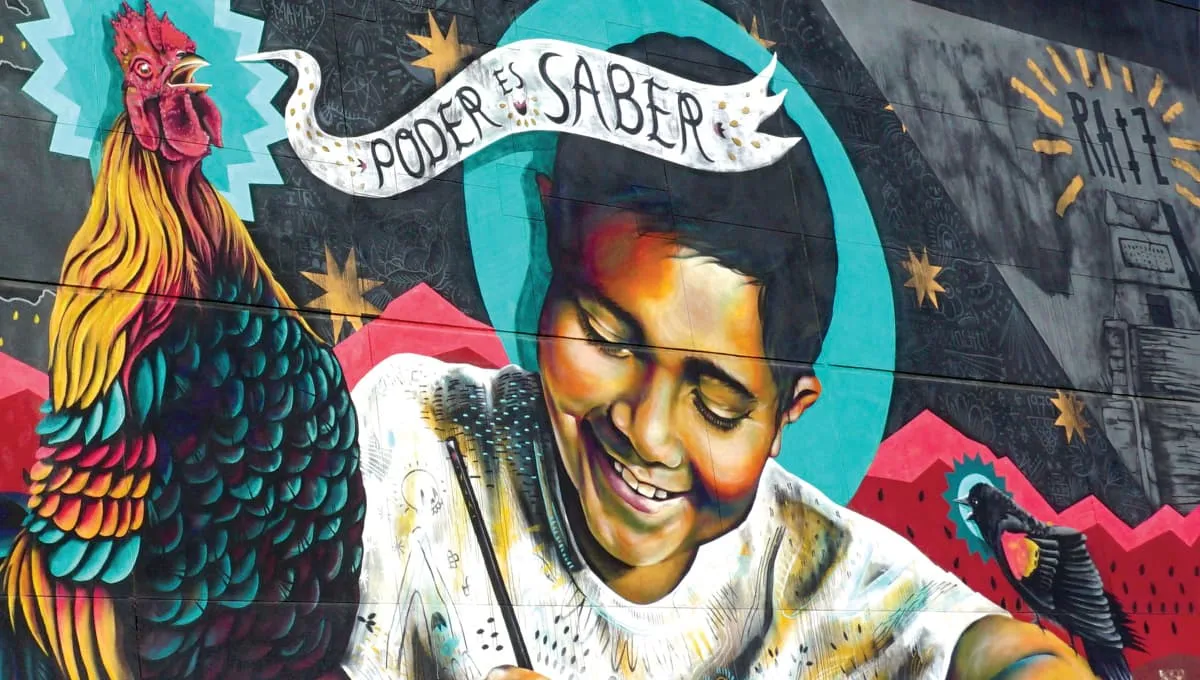

Students learn about the Spanish-speaking world through literary and informational texts, authentic audios, regional videos, and music and art video presentations.
Students explore a Spanish-speaking country or region while delving into themes of personal and public identities, families and communities, global challenges, contemporary life, science and technology, literature, music, and art.
Apertura de módulo/ Module opener
Students learn the geographic and thematic focus of the unit
- Essential Questions introduce the unit’s central concepts.
- Performance objectives introduce the learning outcomes.
- A content preview highlights the texts, media, and topics.
- A map introduces the region that unifies the module.
Preview the theme with a brief video overview.
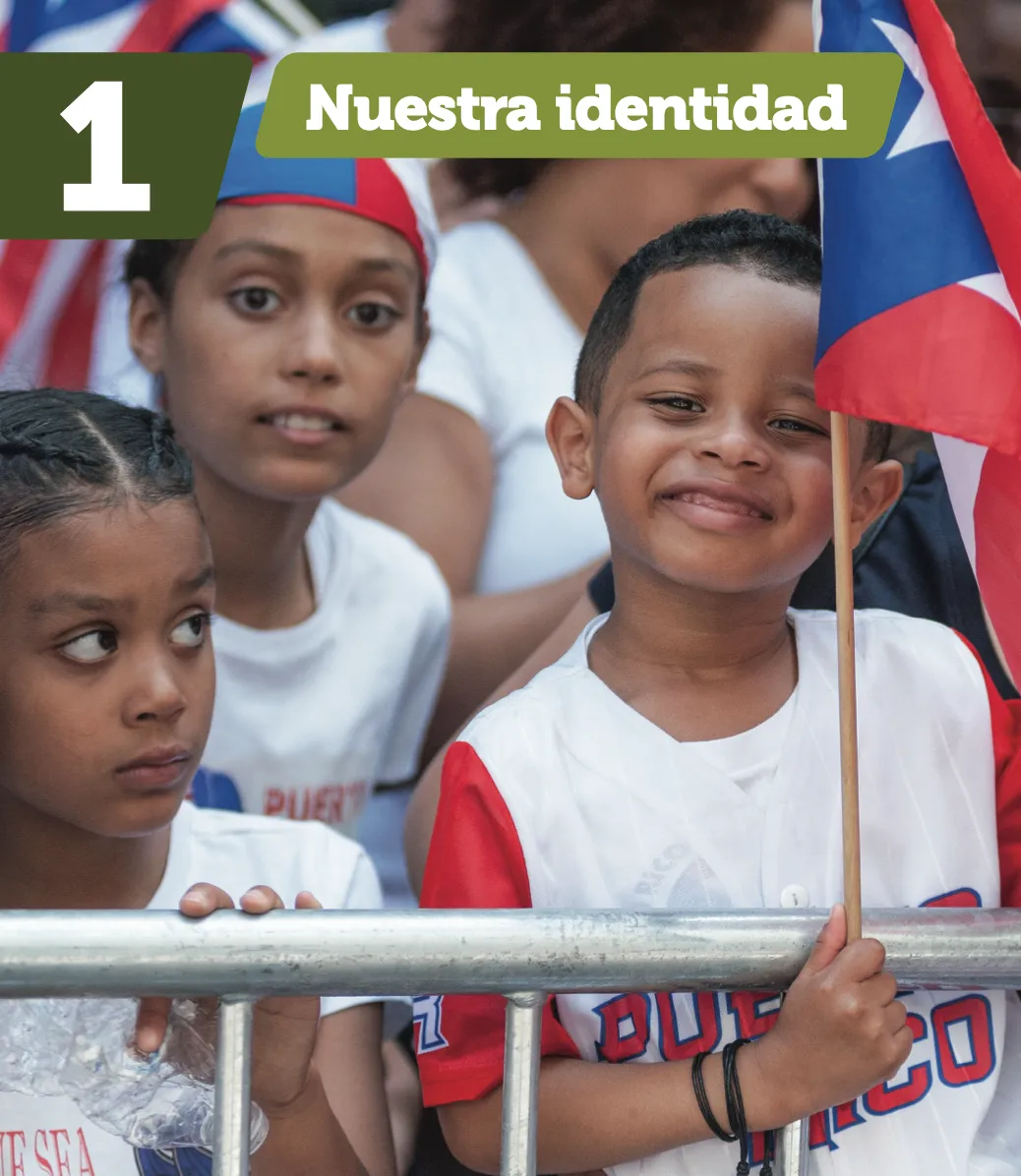
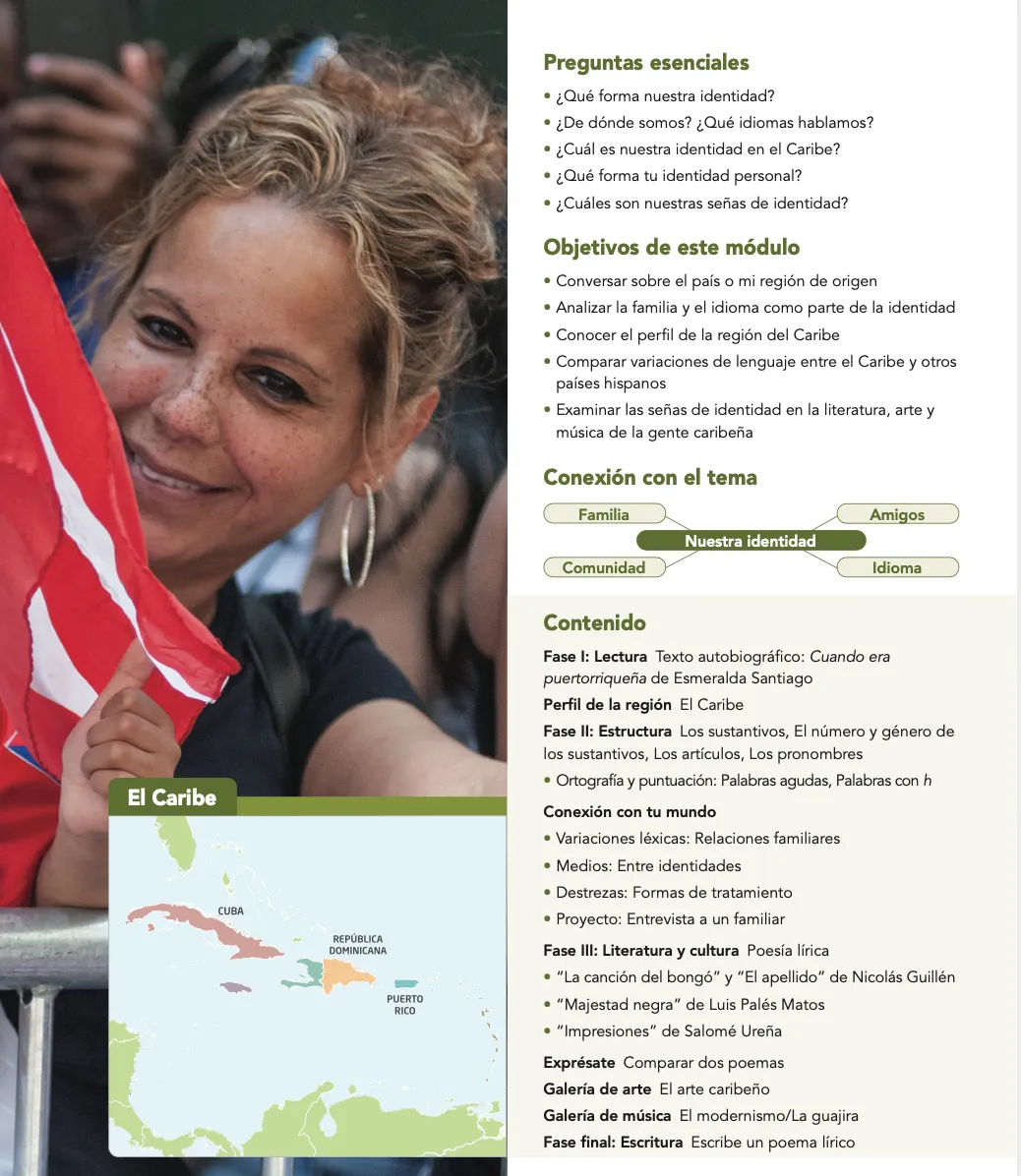
Fase I | Lectura
Students make connections to the theme and develop vocabulary before reading an informational or literary text that expands on the theme
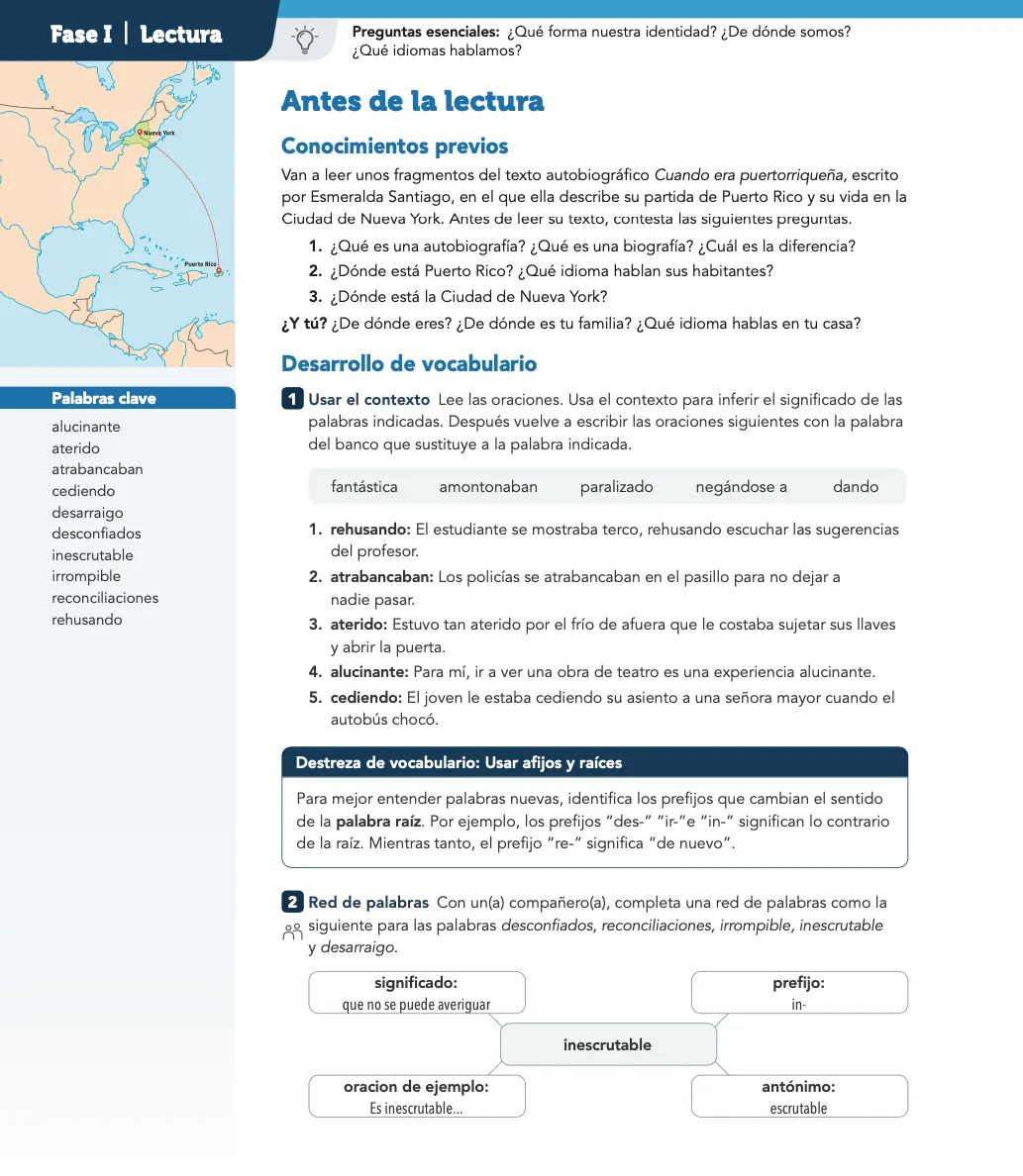
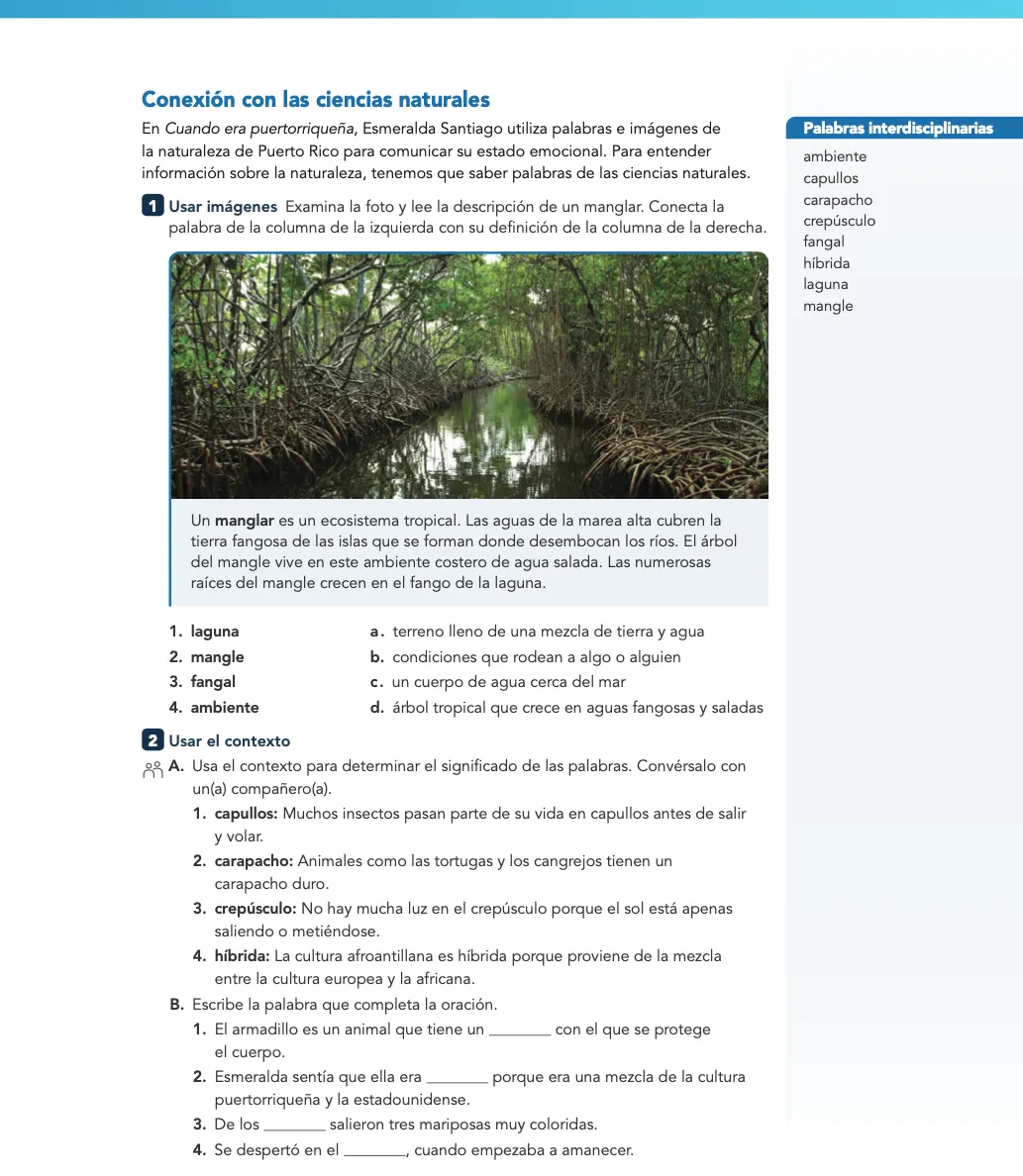
Antes de la lectura
- Background questions promote students’ personal connections with the theme.
- Pre-reading activities introduce and practice key words from the reading as well as develop students' vocabulary skills.
- Cross-discipline vocabulary and content support reading comprehension.
- Author biography and/or historical context, along with text genre information, build background knowledge.
- Reading skills and strategies support reading comprehension.
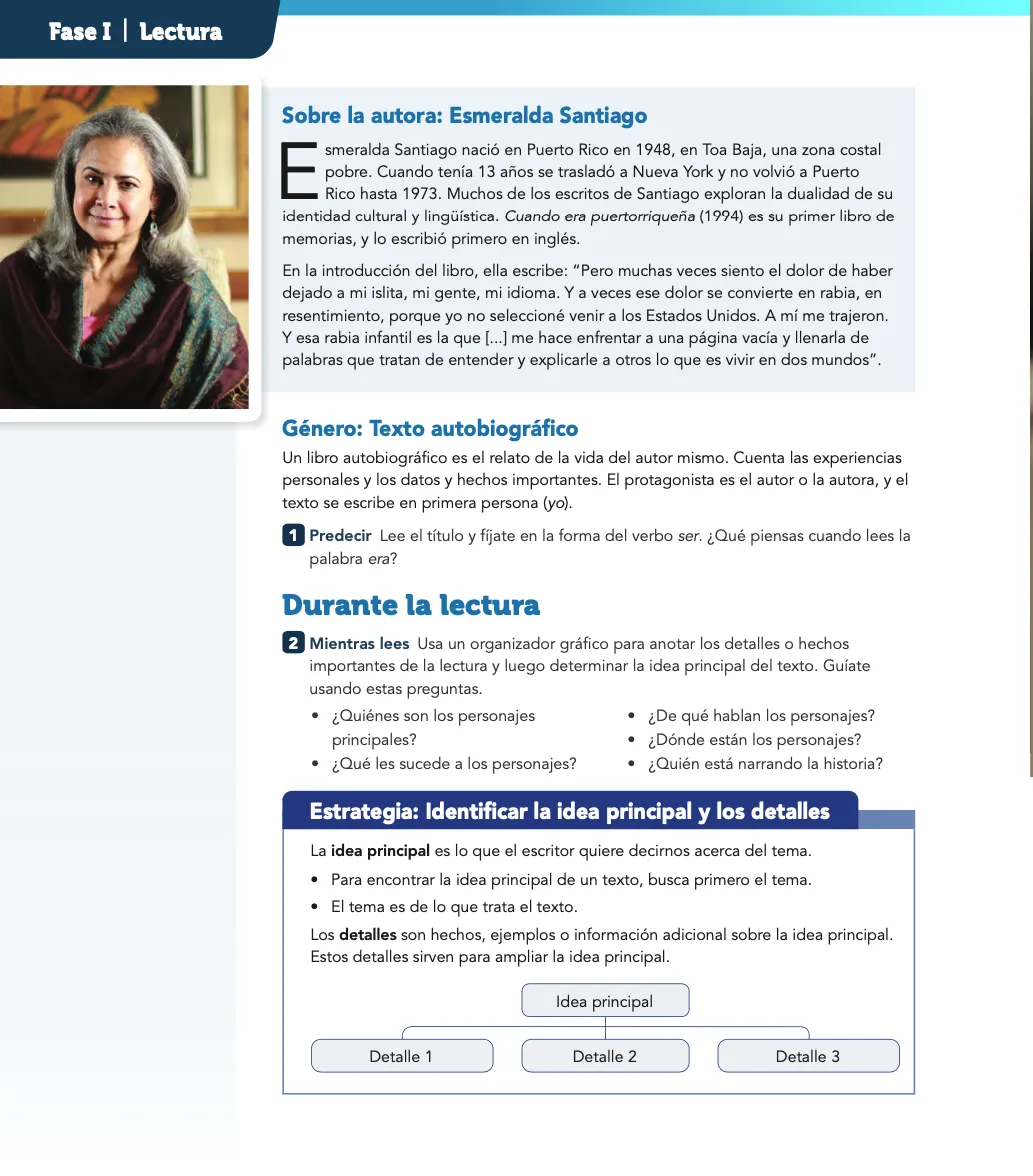
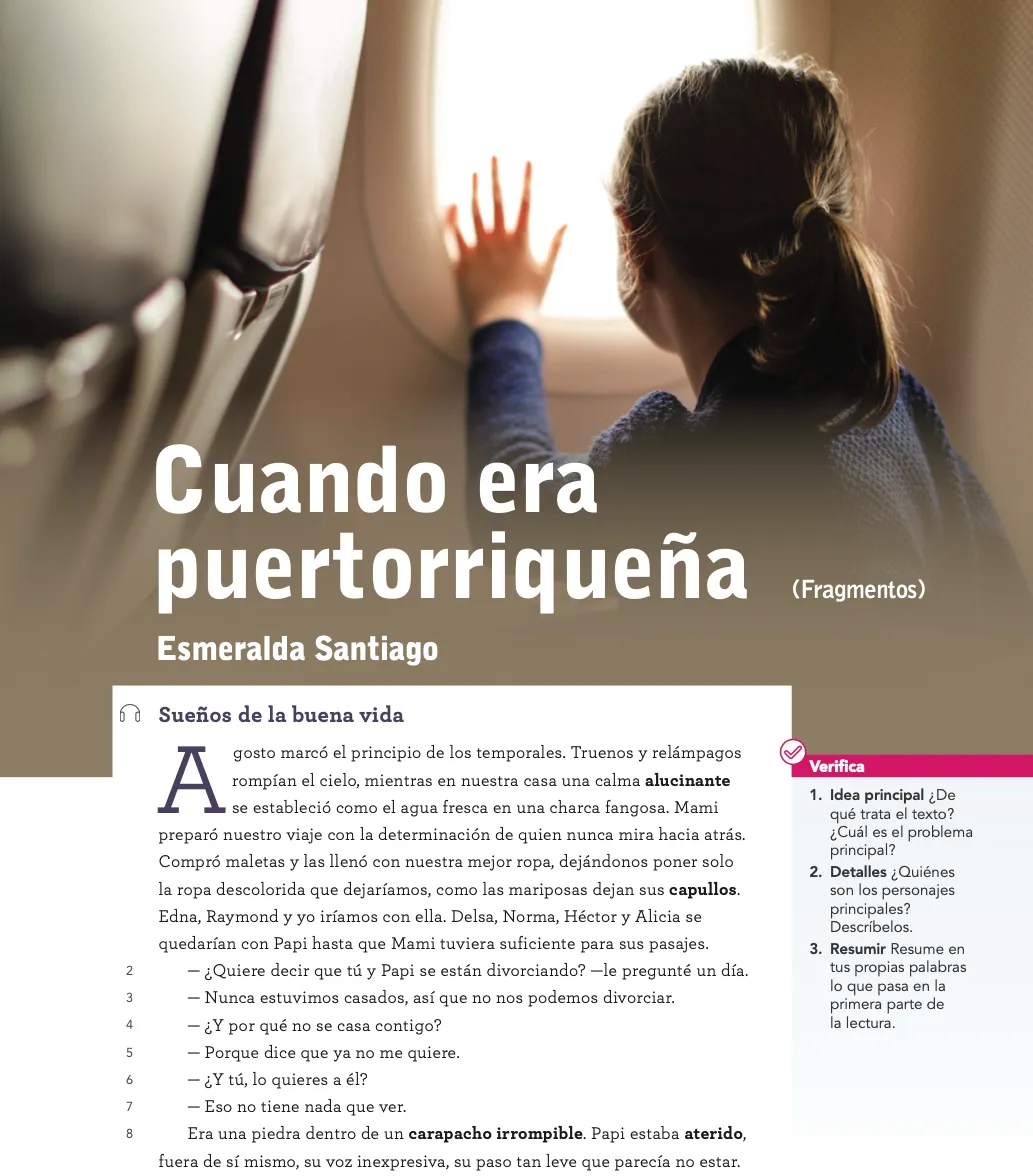
Lectura
- Informative and literary texts
- Verifica questions to monitor comprehension
- Audio recording of reading
Students can listen to an audio recording of the text. The recording provides a model for reading fluency and connection to auditory language strengths of heritage speakers.
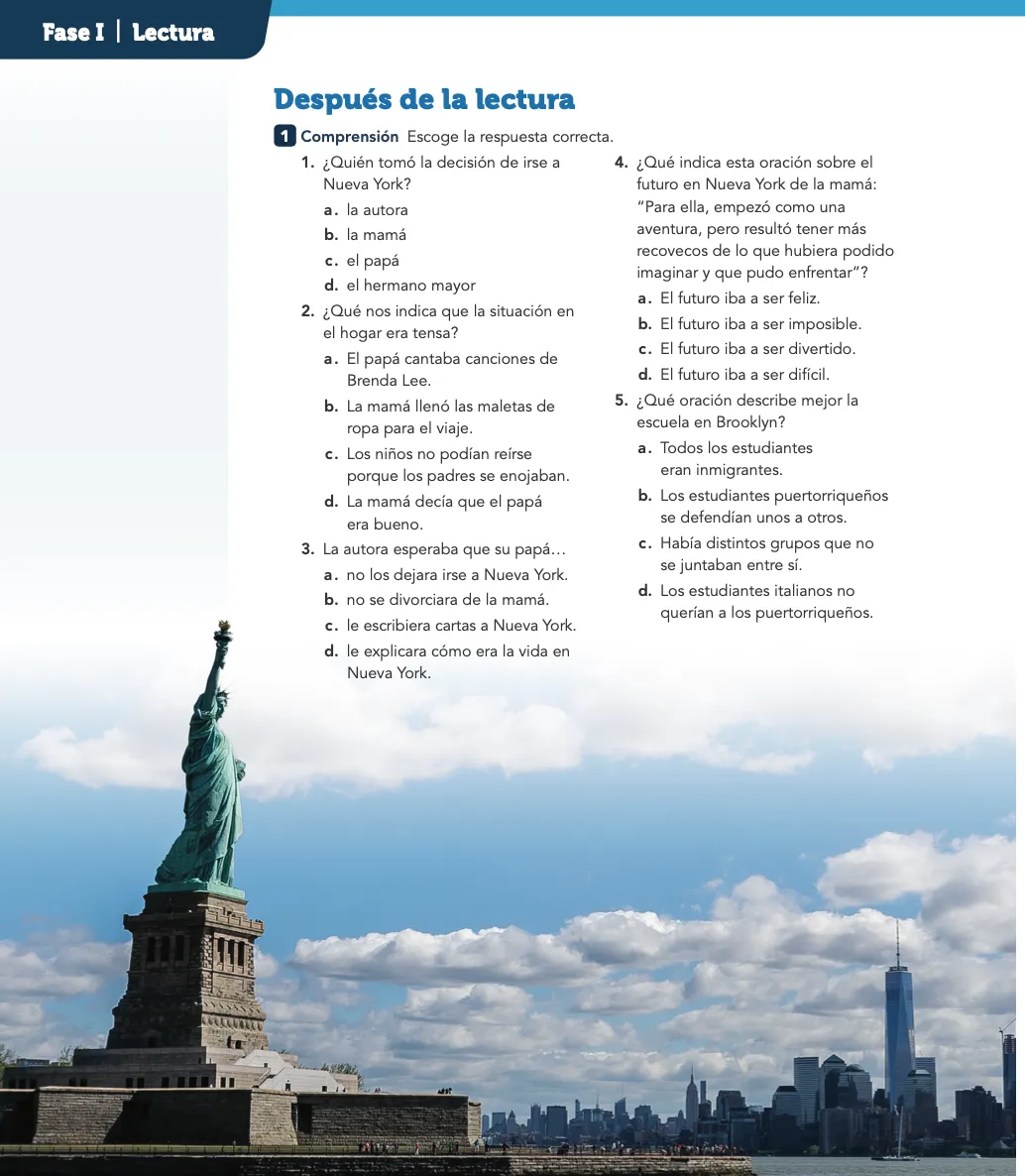
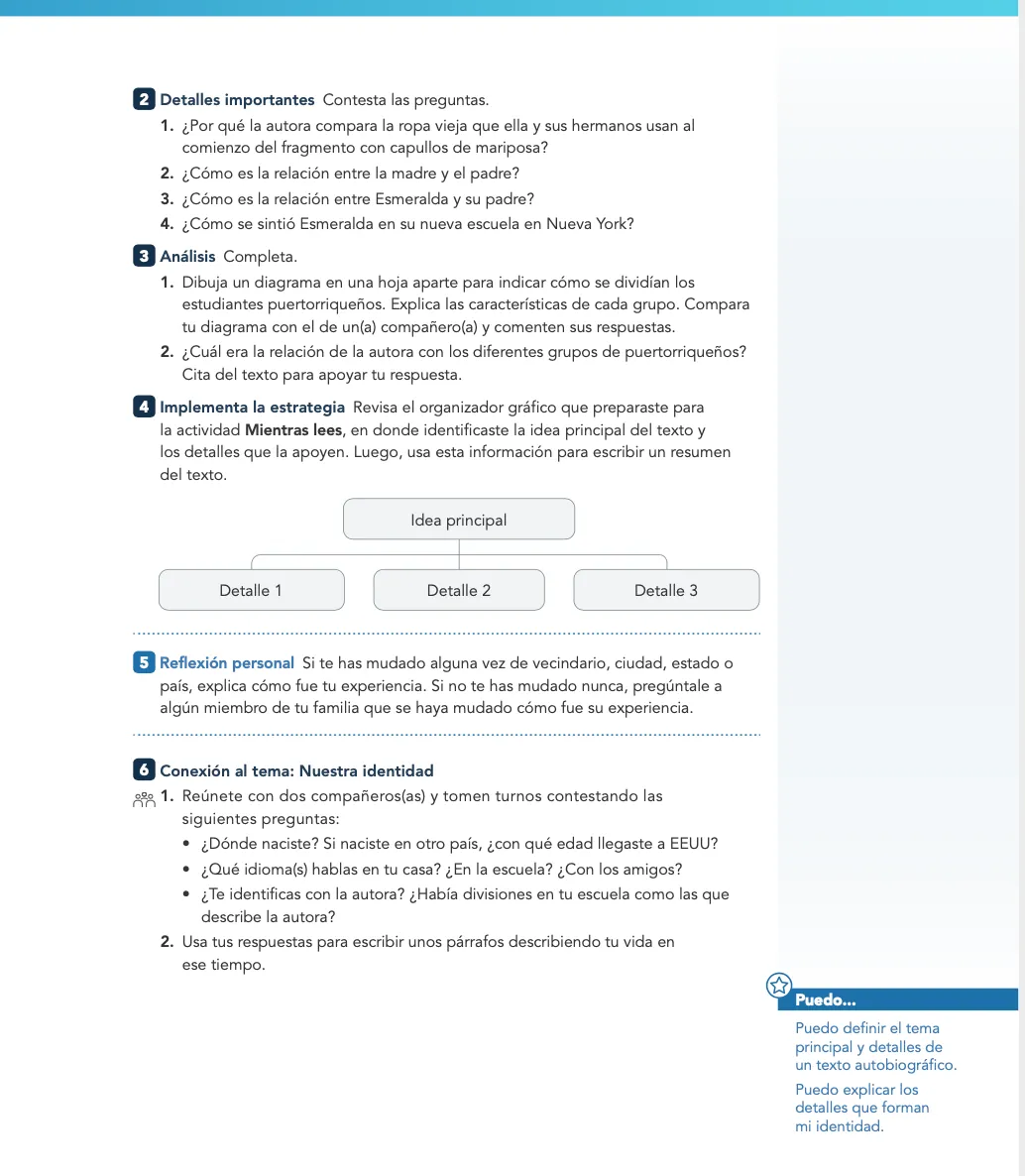
Después de la lectura
- Reading comprehension and critical thinking questions that build in order of language proficiency
- Application of the reading strategy as comprehension
- Personal reflection and discussion questions
Más práctica provides additional vocabulary practice.
Perfil de la región
Students build background knowledge and explore the featured region before they watch a video presentation.
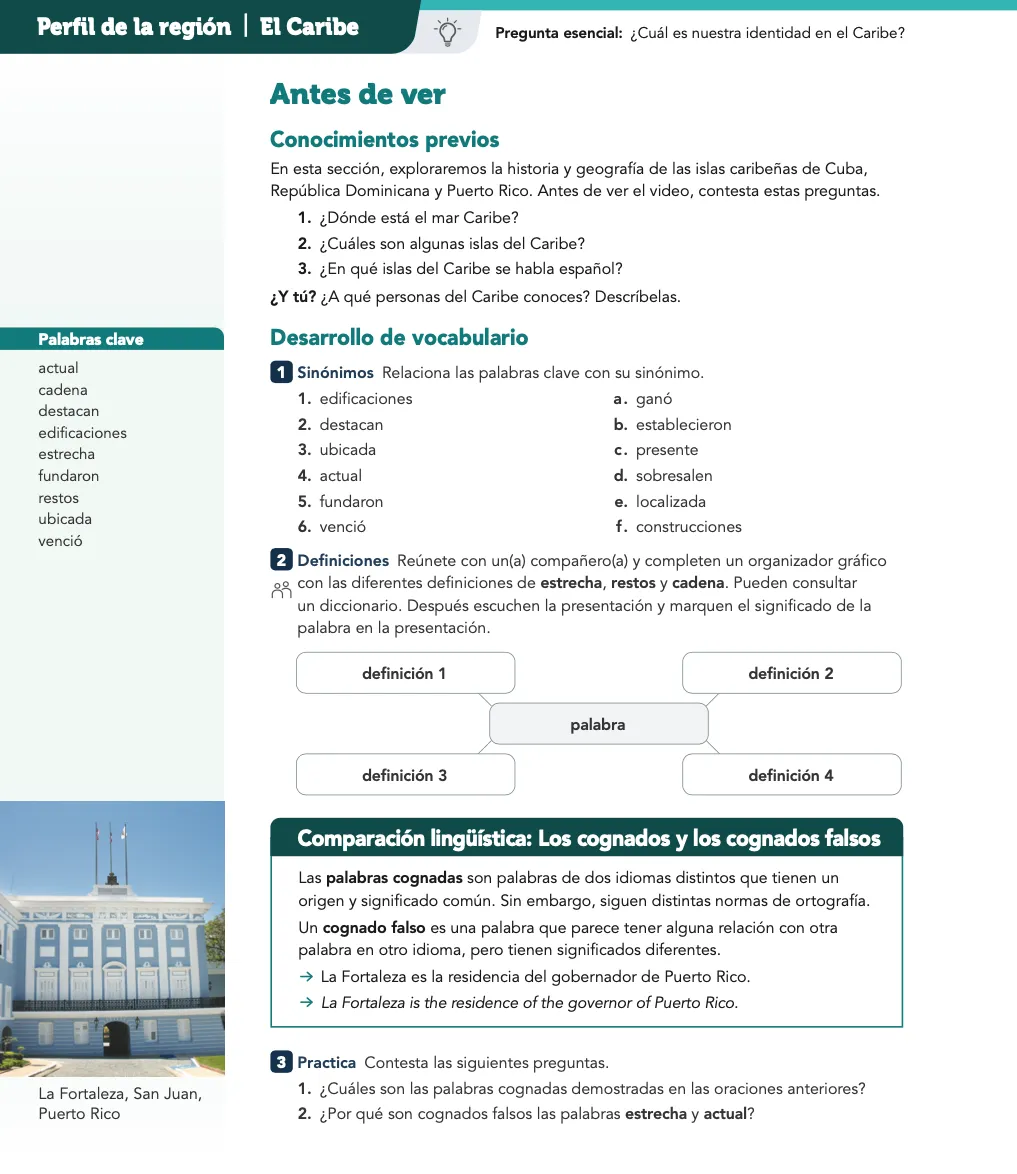
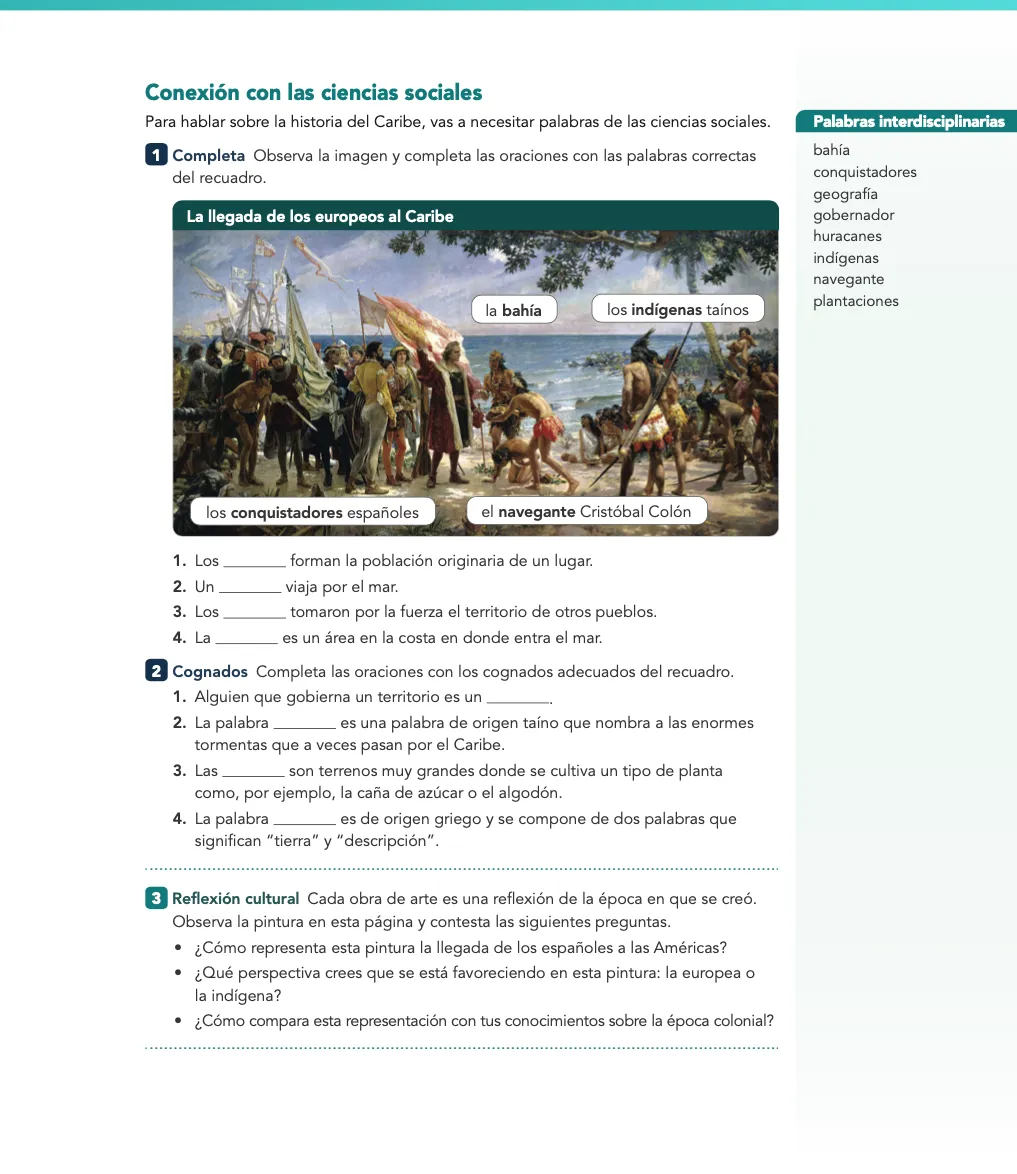
Antes de ver
- Activities to build background knowledge and vocabulary
- Cross-discipline connections to vocabulary and content
- Geography overview
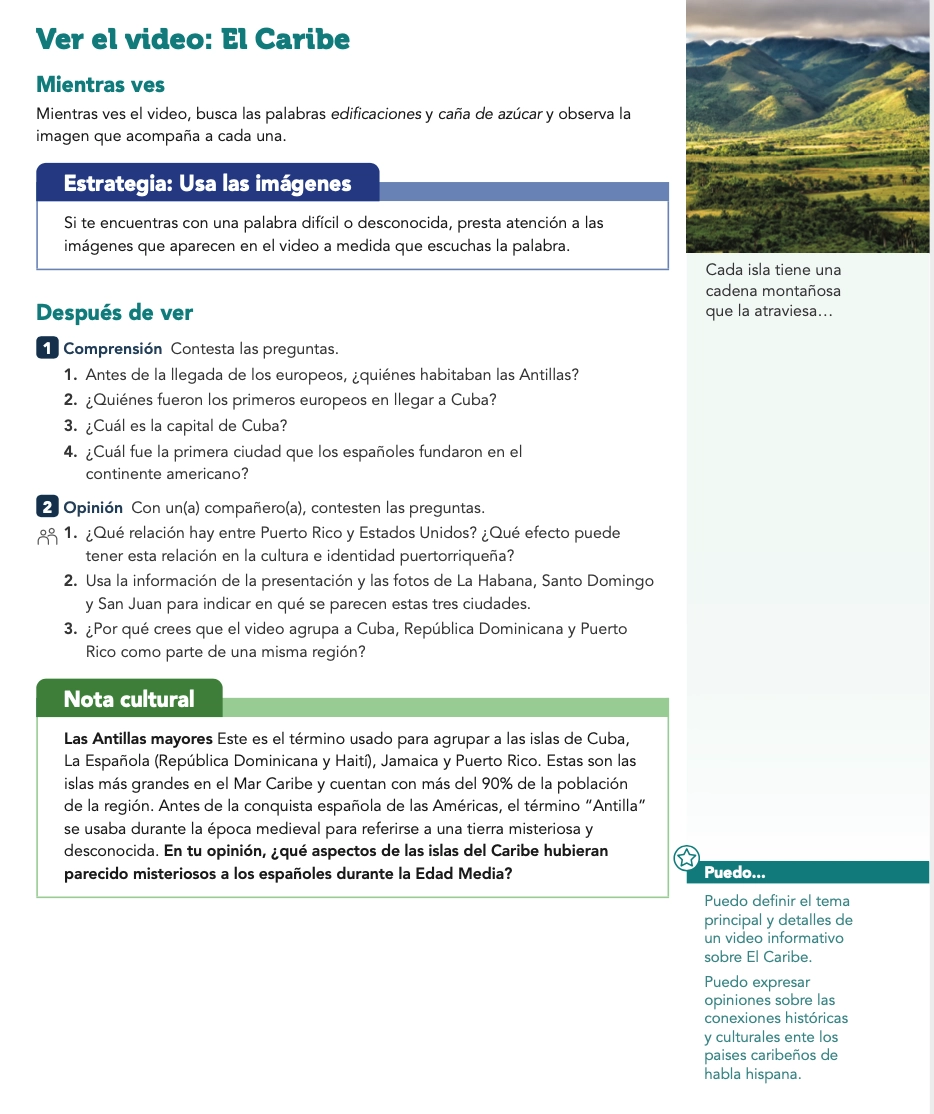
Ver el video/Después de ver
- A regional video engages students with dynamic images, music, and historical, geographical, and socio-political information.
- Post viewing activities check comprehension and promote discussions.
- Nota cultural expands cultural knowledge from the video.
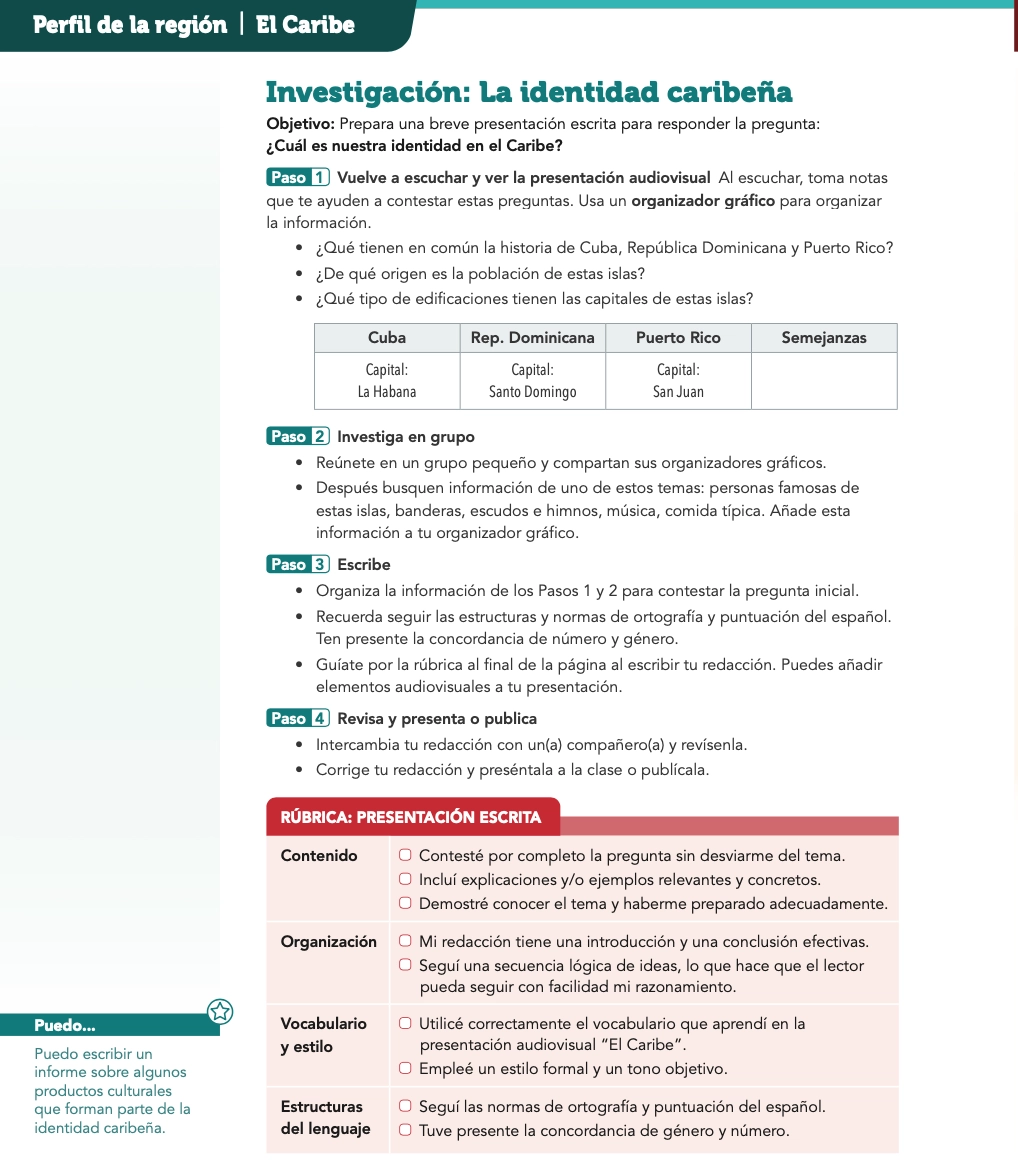
Investigación
- Students complete a written presentation based on research of the highlighted region.
- Step-by-step instructions are provided for groups and individuals.
- Rubrics guide student writing and peer review.
Más práctica provides additional vocabulary practice.
Fase II: Estructura
Students learn and practice language structures in context using vocabulary and concepts that were presented in the Fase I reading and the Perfil de la región video.
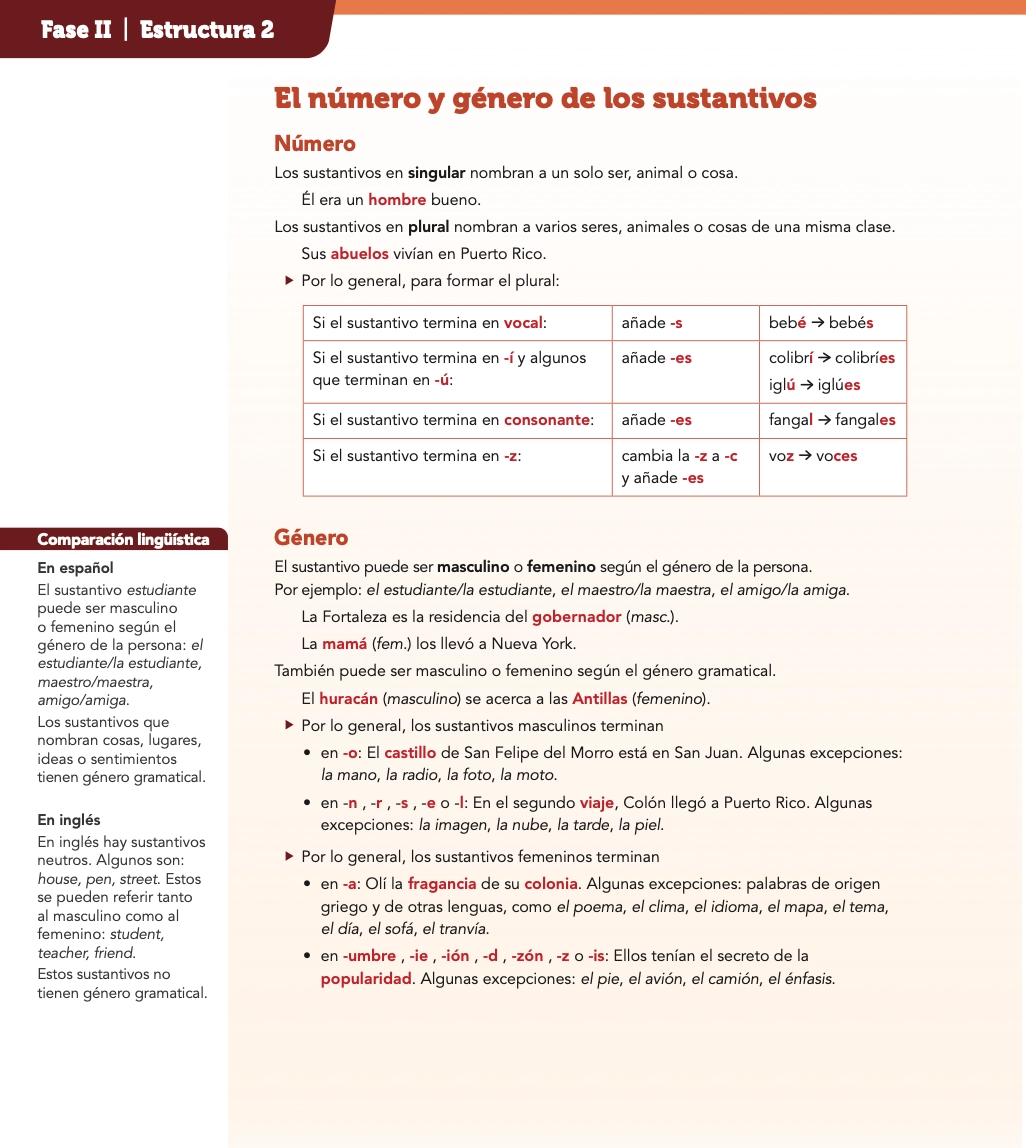
Presentations
- Grammar concepts presented in context
- Connections to English
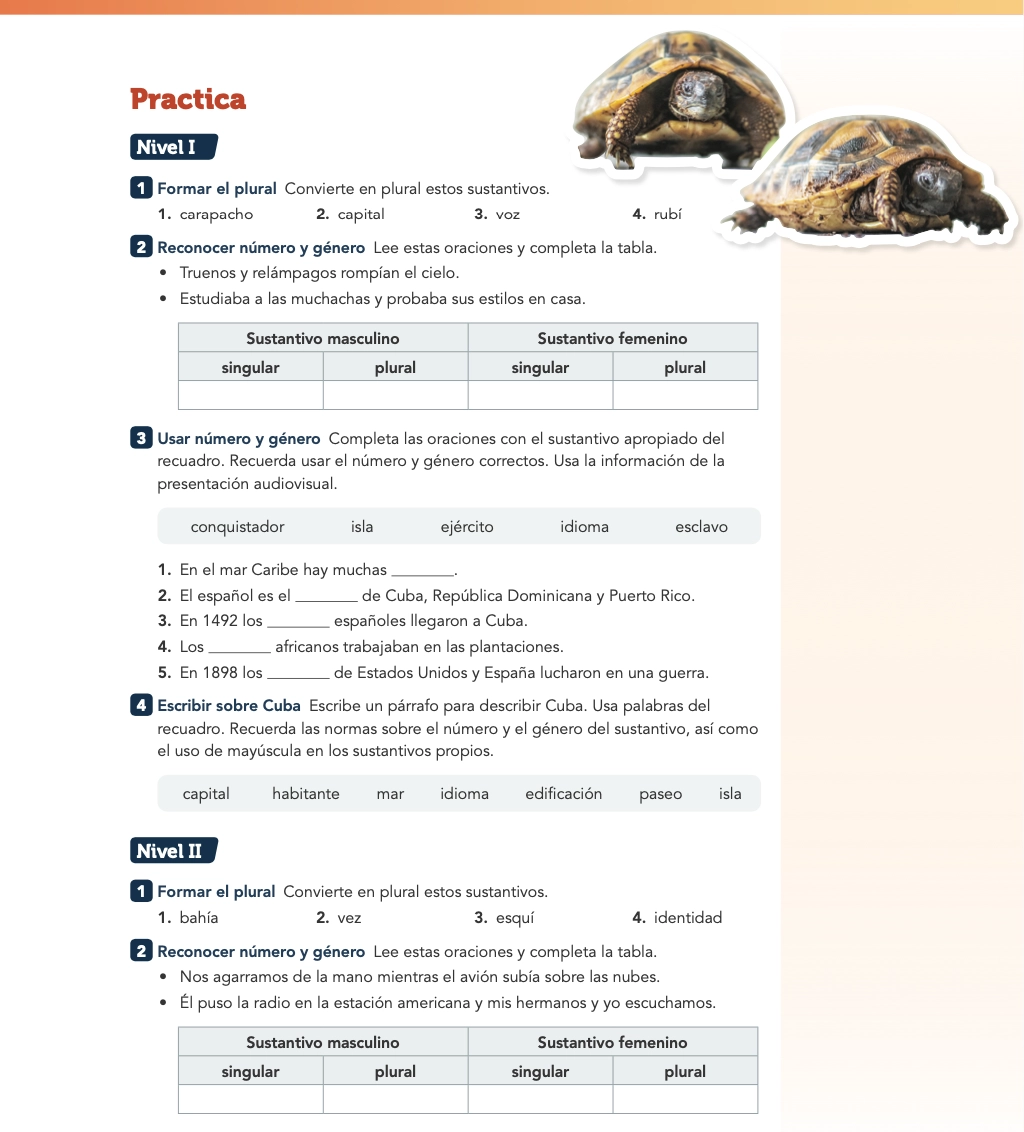
Practica
Three levels of practice:
- Level I practice: essential communication and concepts
- Level II practice: more advanced vocabulary and access to the language
- Level III practice: complex comprehension and language control
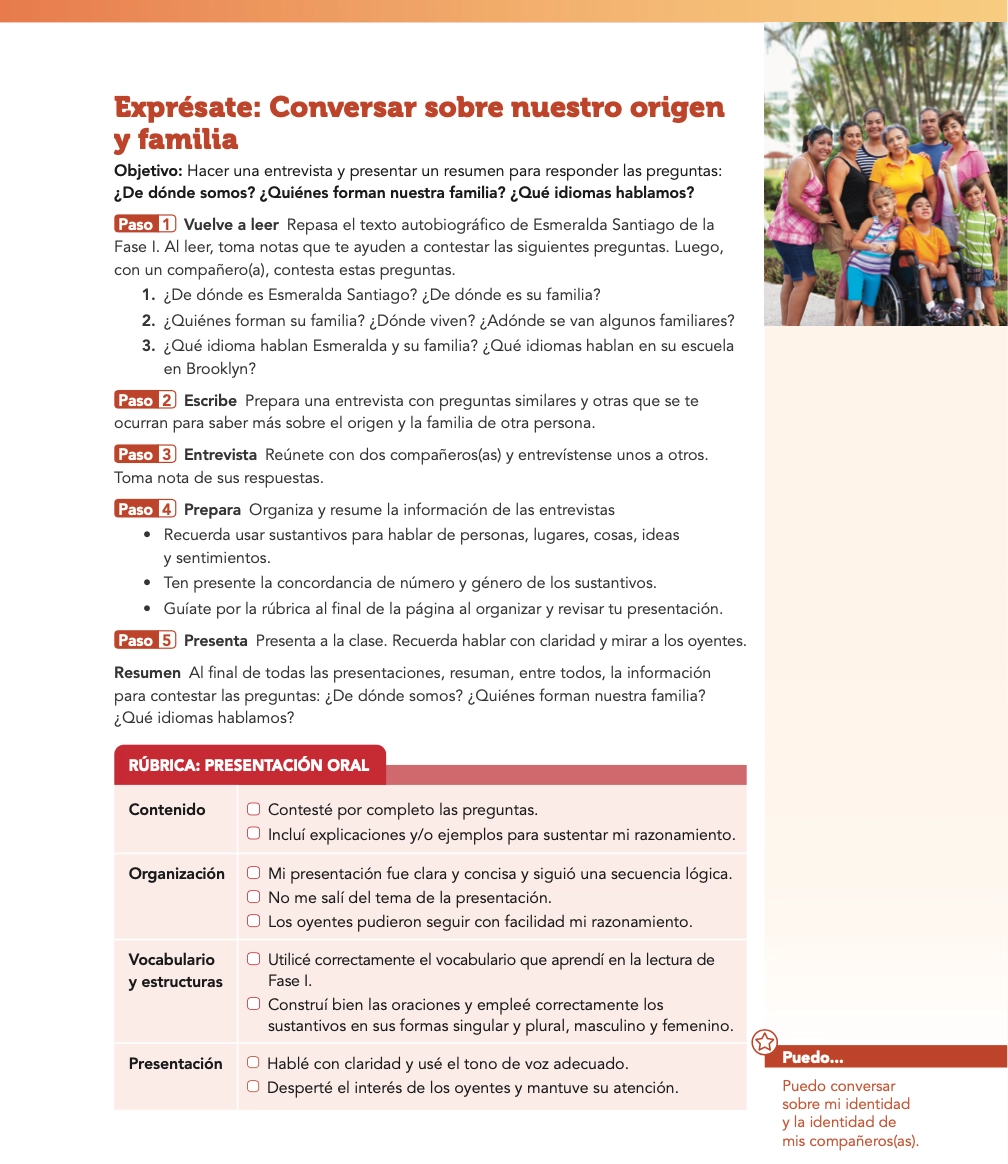
Exprésate
- Oral and written presentations using the language structures
- Step-by-step instructions for groups and individuals
- Rubrics to guide writing and for peer review
Grammar videos feature explanations and dynamic visuals to support
concepts.
Más práctica provides additional practice.
Fase II: Ortografía y puntuación
Opportunity to review spelling confusions and practice pronunciations.
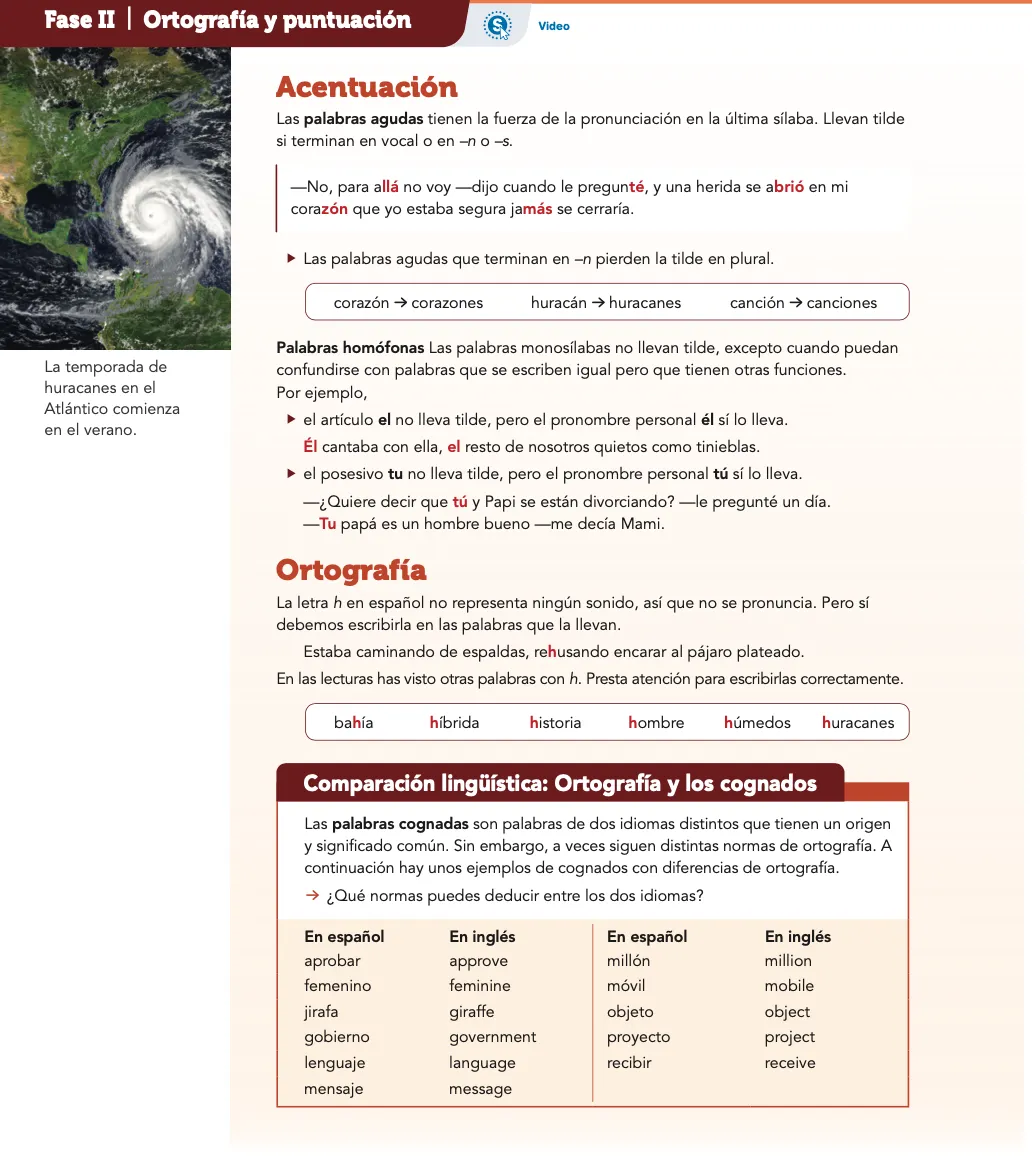
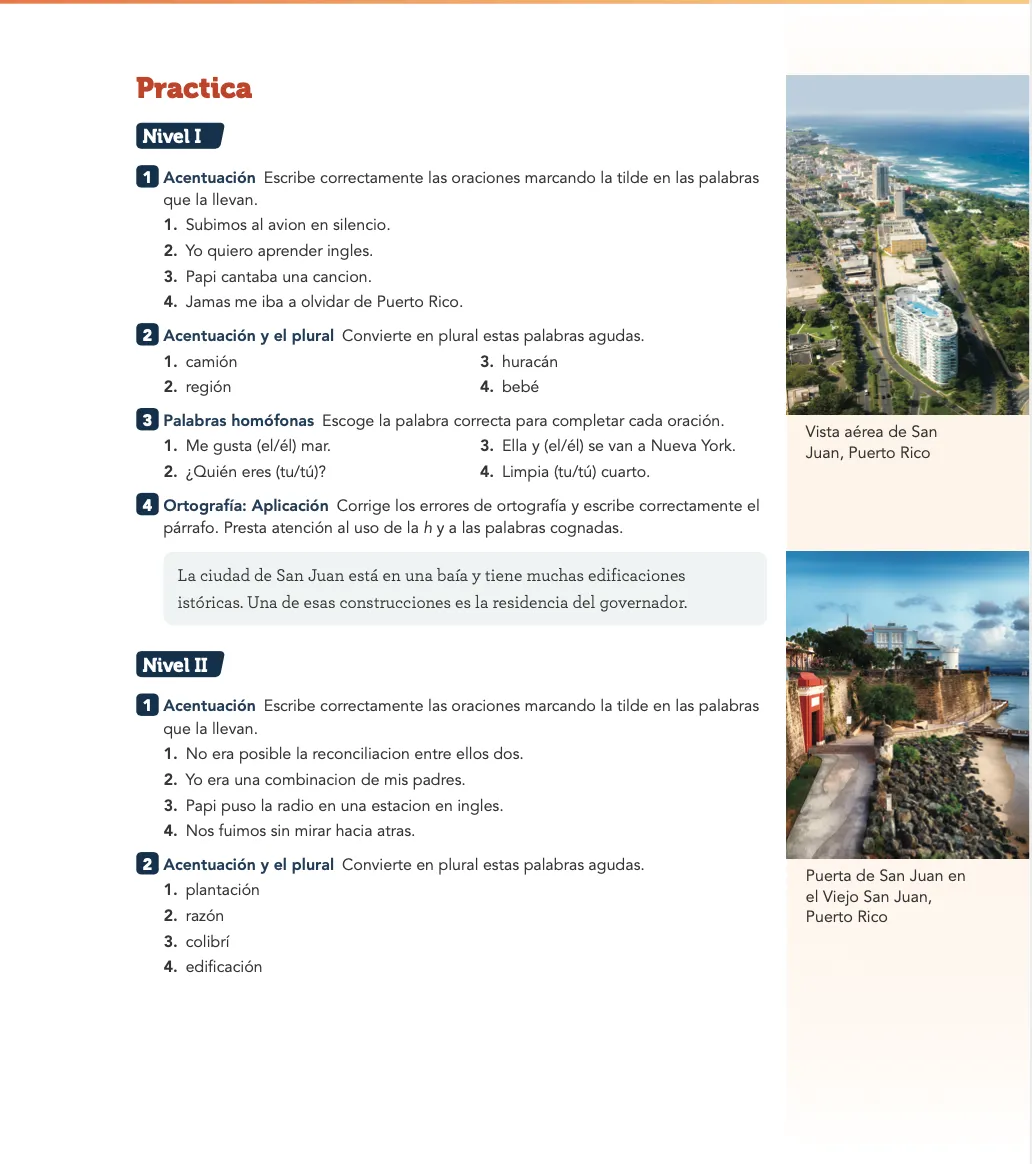
Acentuación
- Spelling confusions and accentuation review
- Comparisons to English
- Three levels of practice
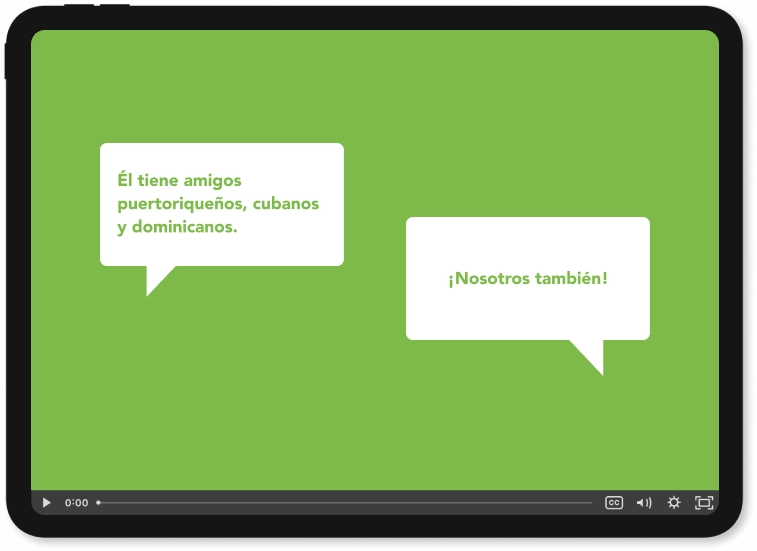
New Ortografía (spelling confusion) videos
Spelling and accentuation videos feature explanations and dynamic visuals to support concepts.
Conexión con tu mundo
New Conexión con tu mundo section focuses on students’ daily experience and real-world skills with authentic content, lexical variations, interactive activities and media, culminating with a community-focused project.
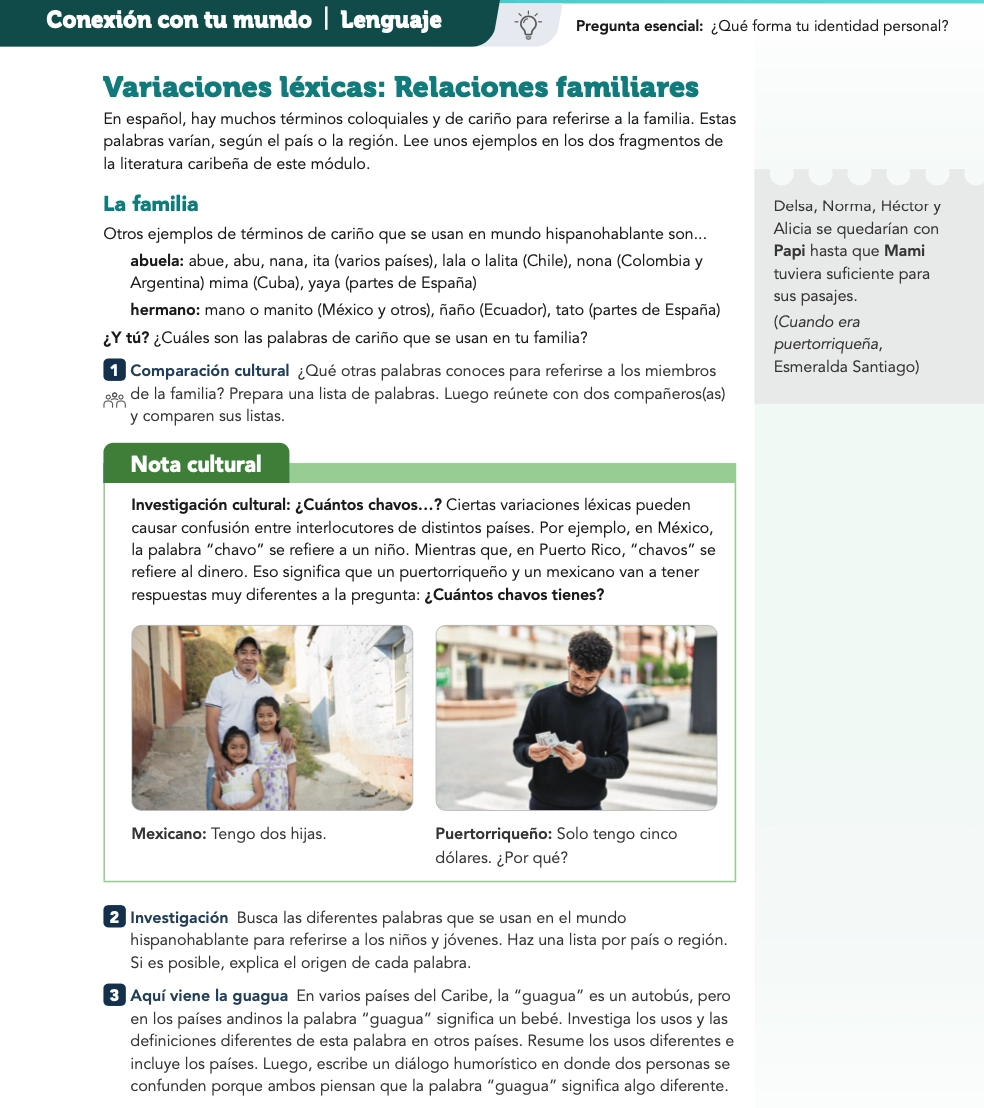
Variaciones léxicas presents the variety of language in the Spanish-speaking community.
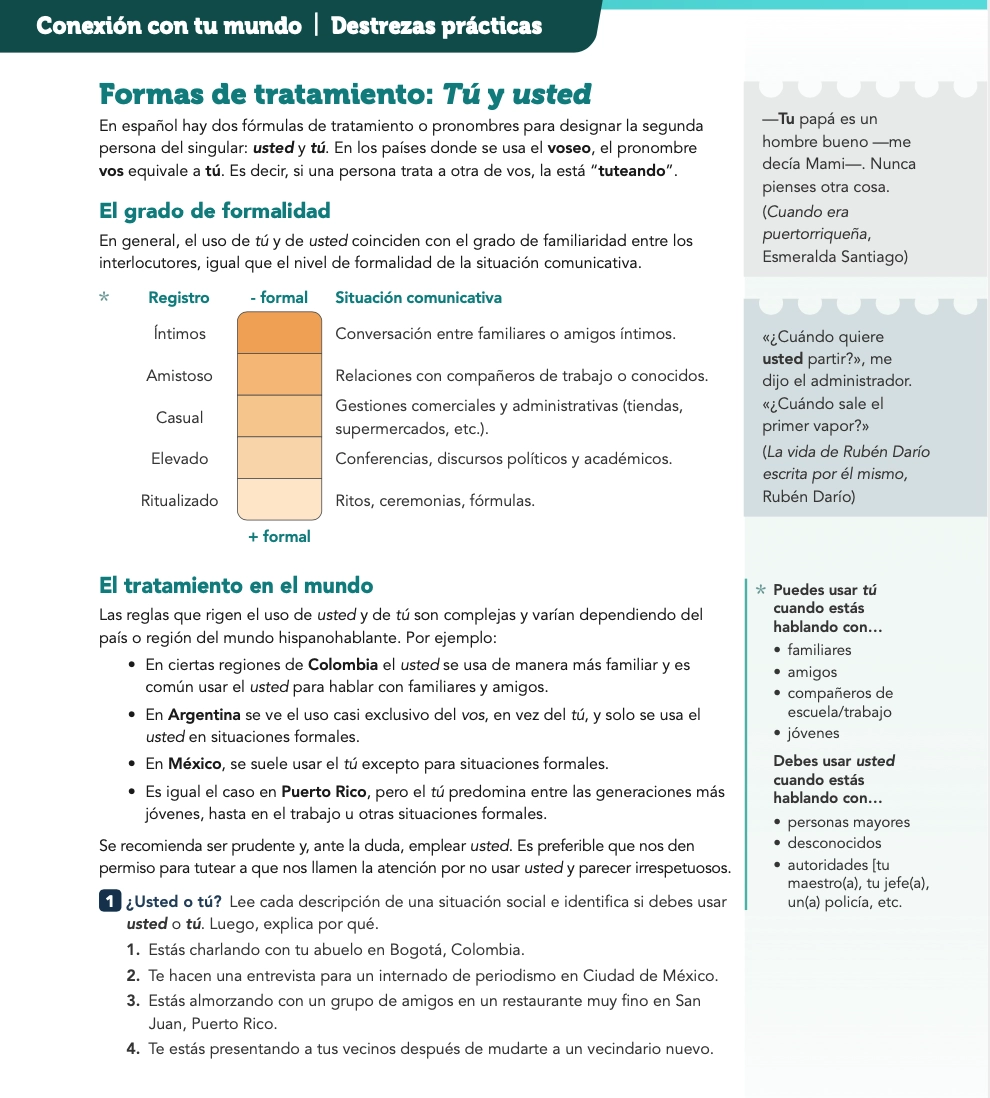
Destrezas are short readings designed to enhance life skills, followed by discussion questions.
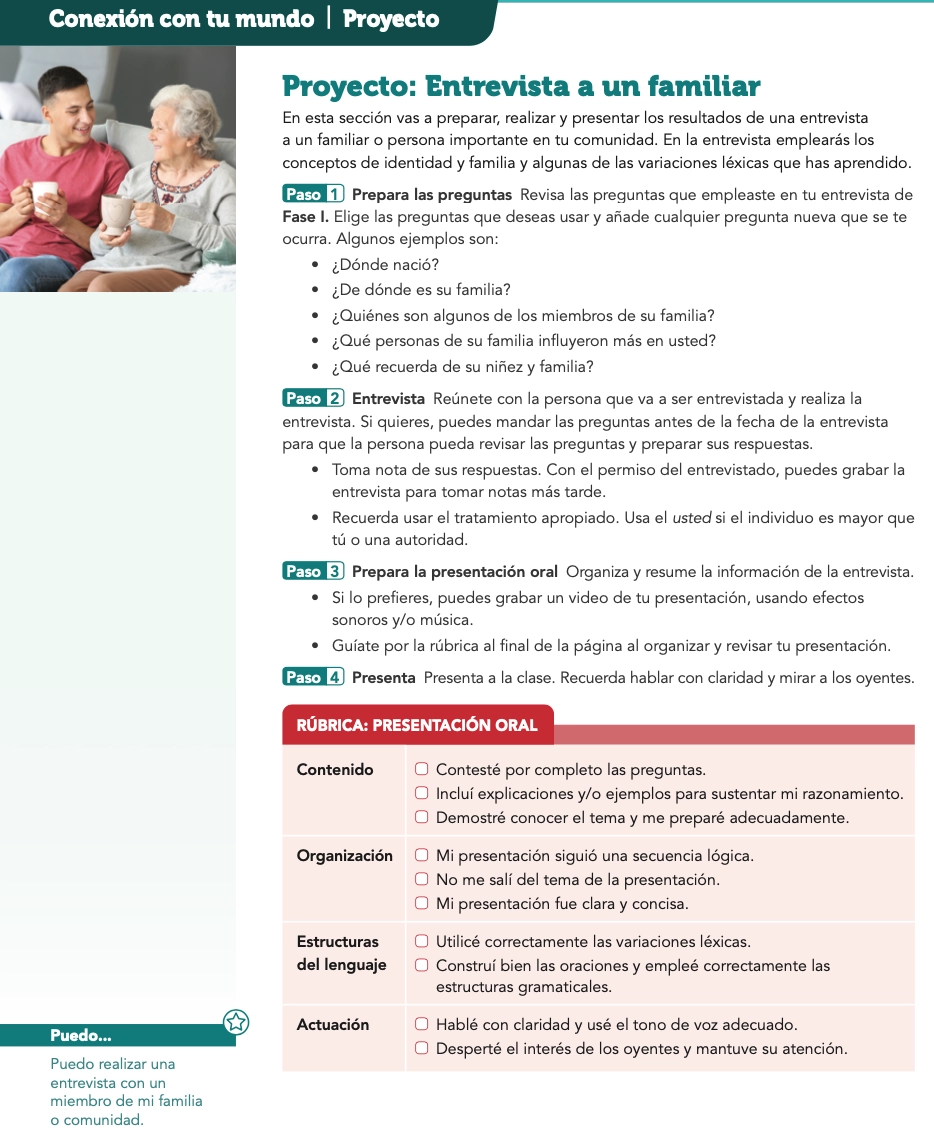
Proyectos are mini-projects for students that connect to the theme and tie together what students learn in Medios and Destrezas.
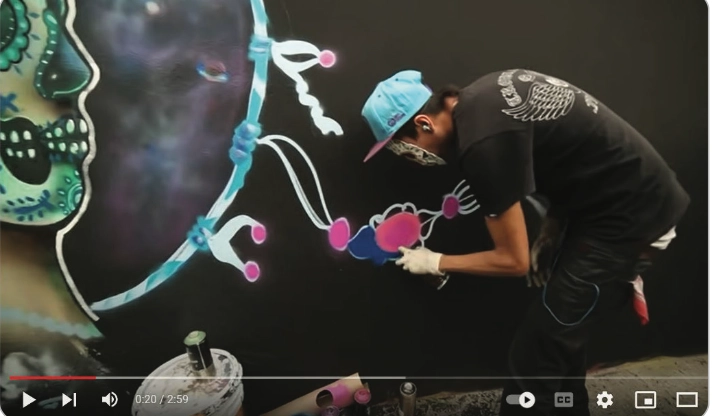
Authentic videos and audio podcasts available online engage students with real-world topics.
Fase III: Literatura y cultura
Students learn about authors from the Spanish-speaking world within a historical context. They then explore authentic texts and literary pieces as they develop their vocabulary, learn reading strategies, and analyze the genre and its literary elements.
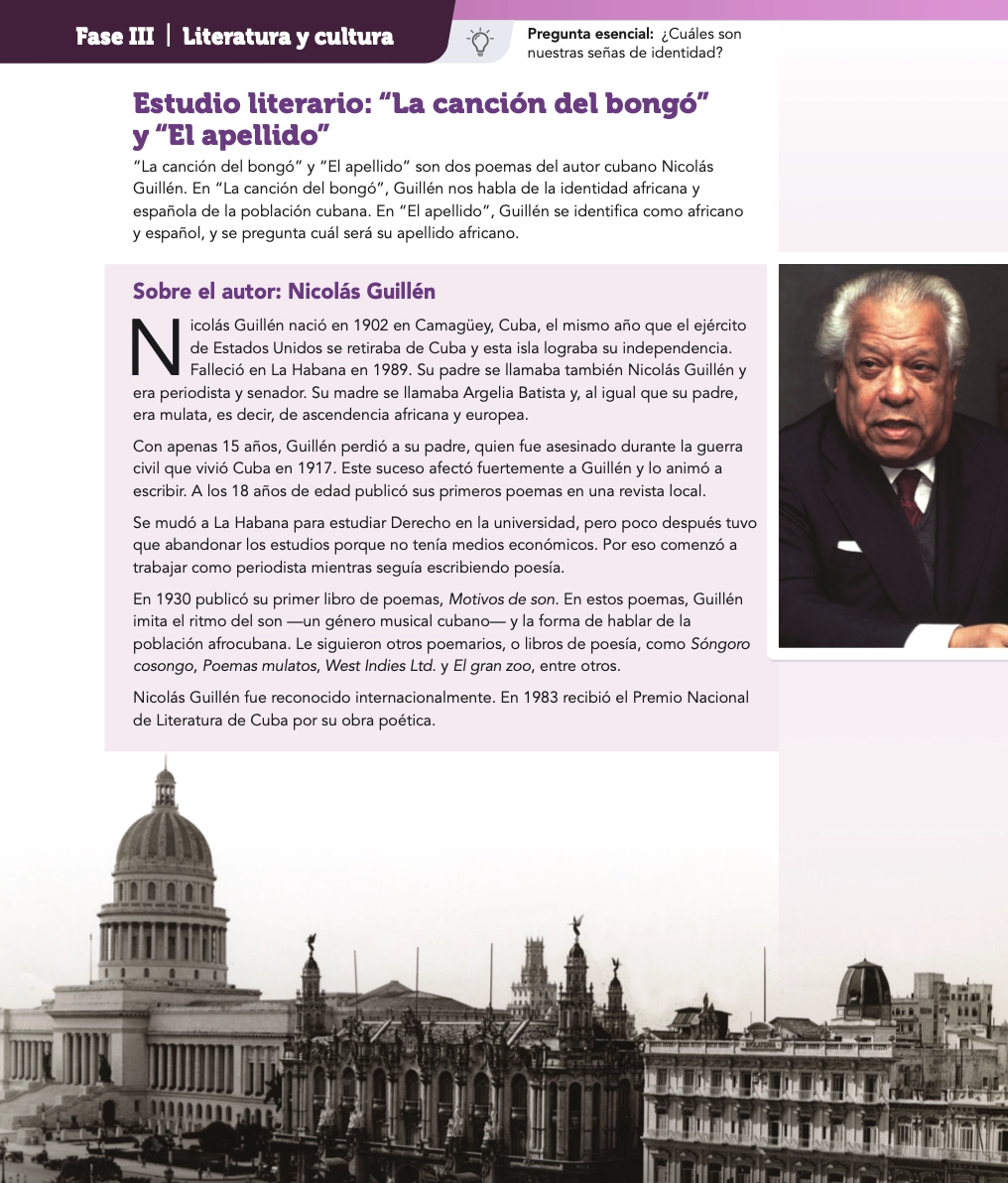
Estudio literario
- Author biography and historical and cultural context
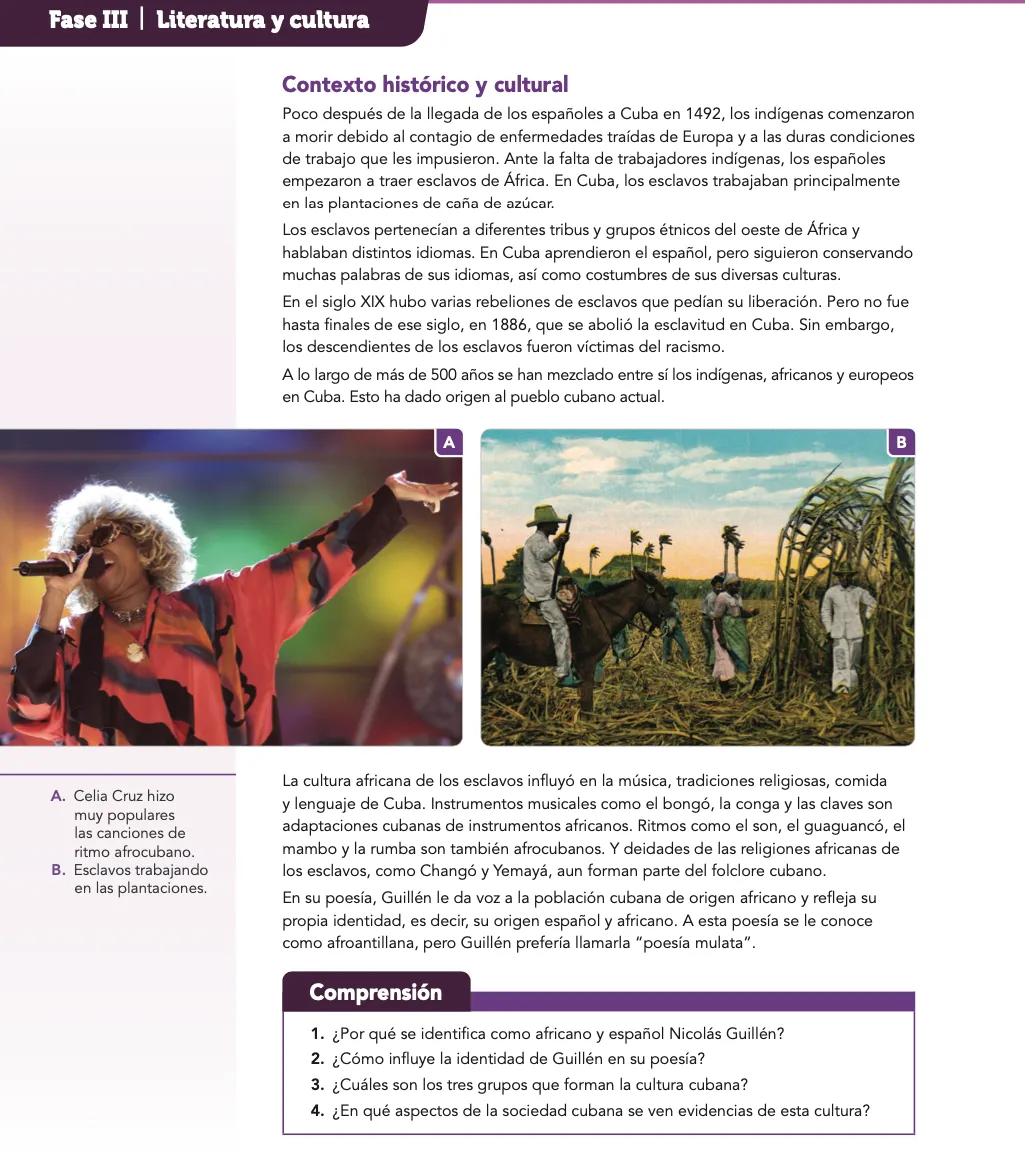
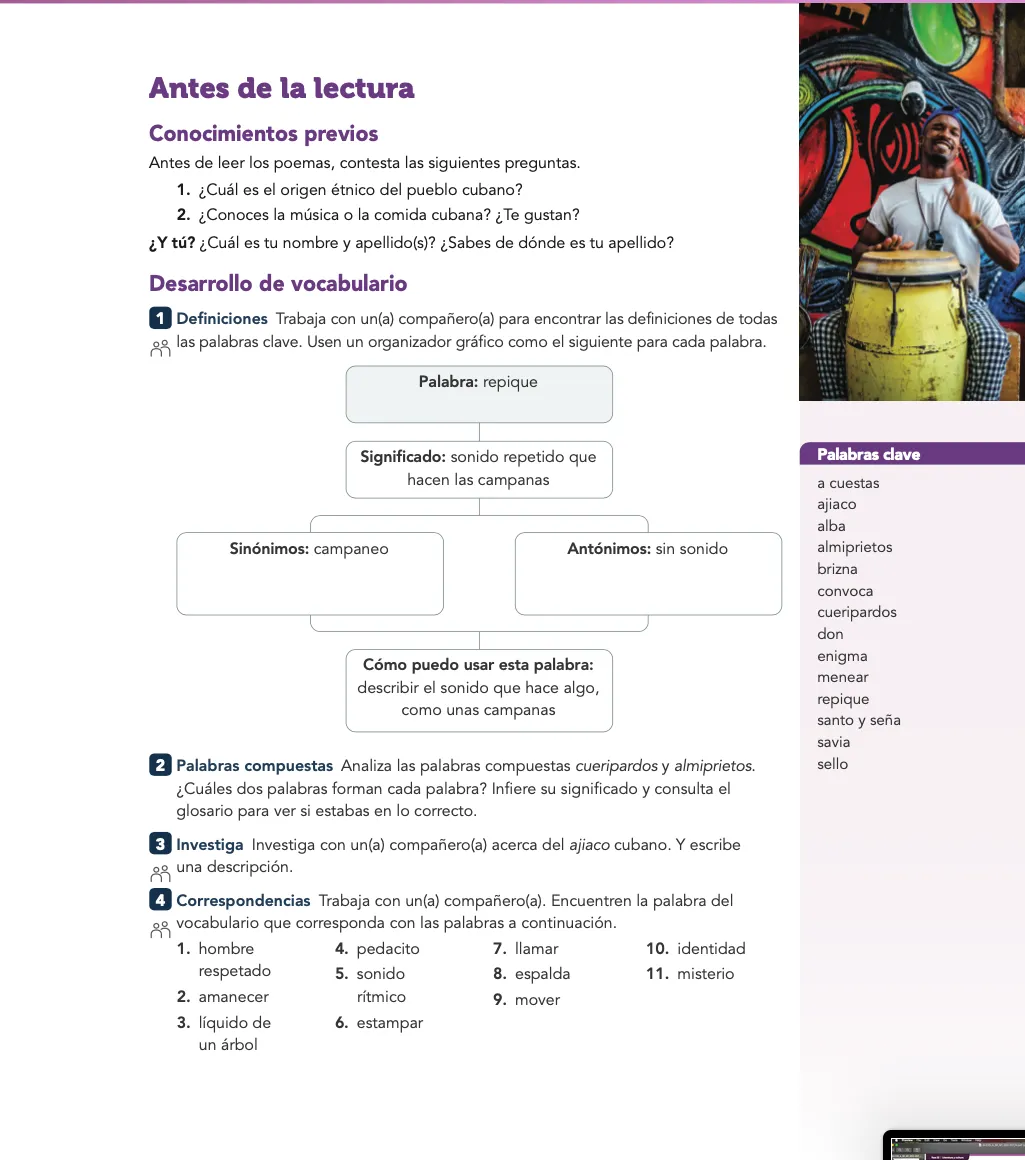
Antes de la lectura
- Background questions promote students’ personal connections with the theme.
- Pre-reading activities introduce key words from the reading and develop students vocabulary skills.
- Genre introduction
- Reading strategy presentation
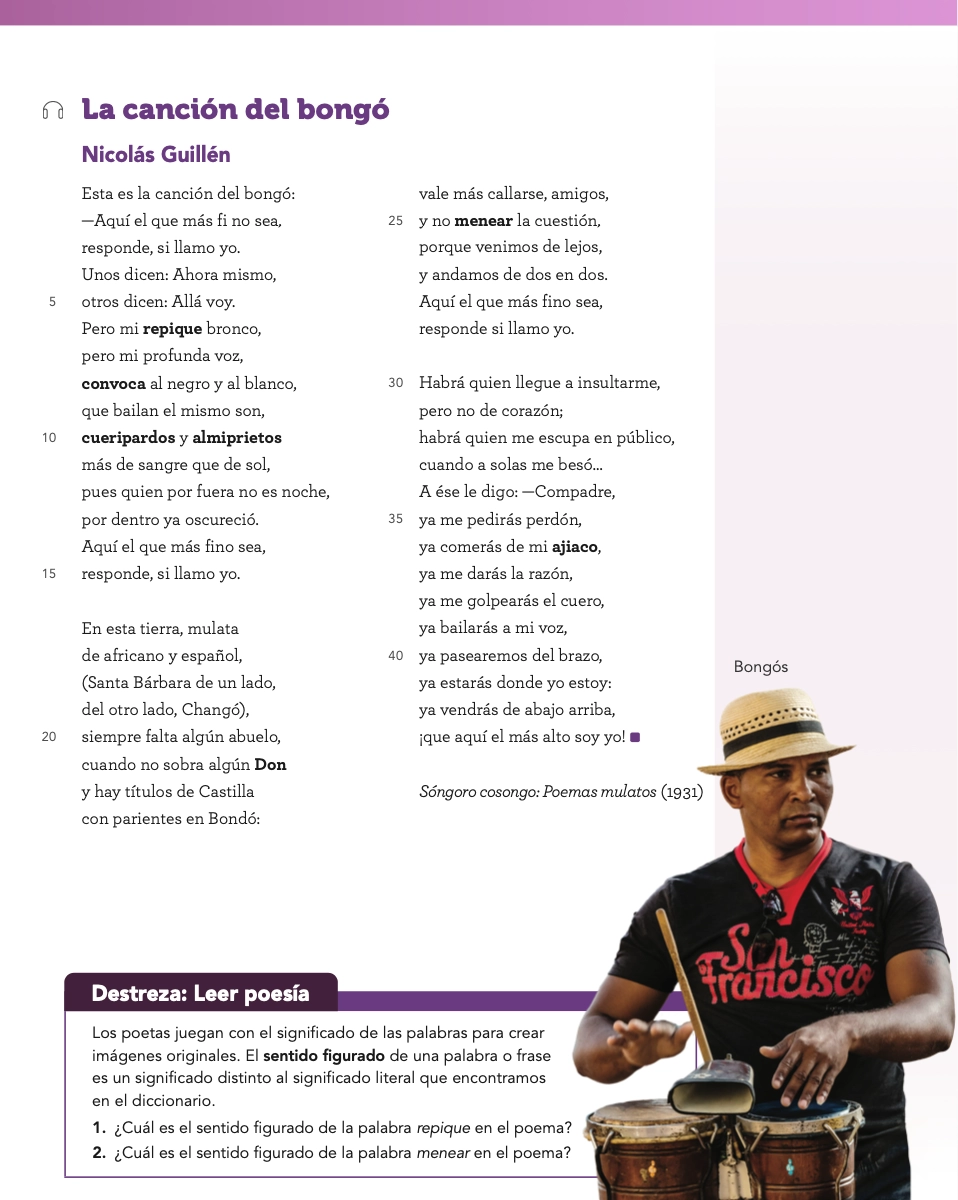
Lectura
- Literary texts align to the theme and region, with AP® authors also represented.
- Informative texts from well-known media sources present current global issues.
The audio recording online provides a model for reading fluency and connects to the auditory language strengths of heritage speakers.
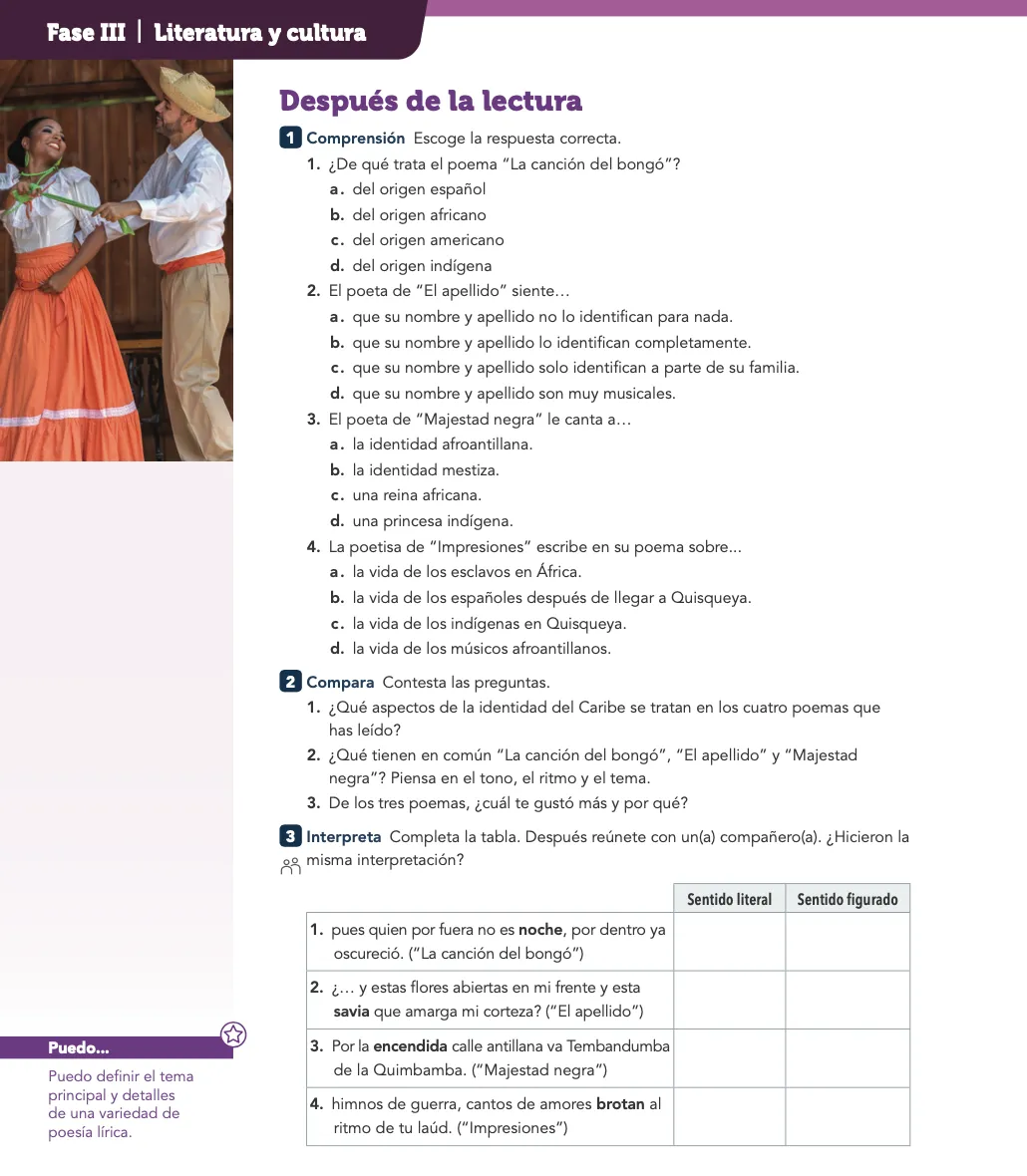
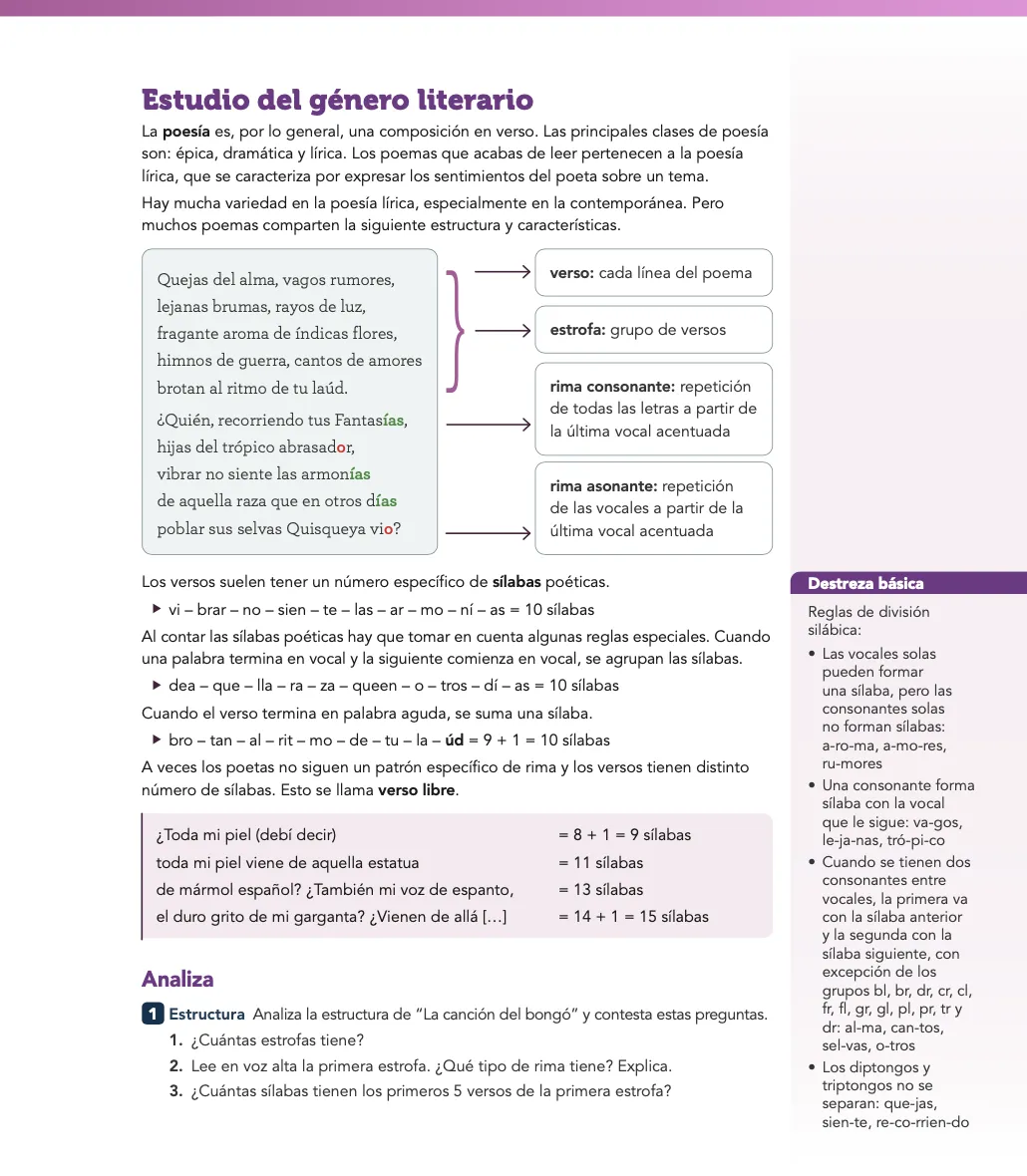
Después de la lectura
- Reading comprehension and critical thinking questions that build in order of language proficiency
- Personal reflection and discussion questions
-
Targeted literacy skill-building activities that include:
- Estudio del género literario
- Elementos literarios
- Integración de destrezas de lectura
Galería de arte y música
Cultural connections are expanded through regional art and music
- Artists and art movements with activities
- Music connections to culture and literature with lyrics of classic songs and activities
Cultural art and music videos engage students with dynamic images and regional music. Karaoke videos provide two options: music only or music and lyrics of classic songs
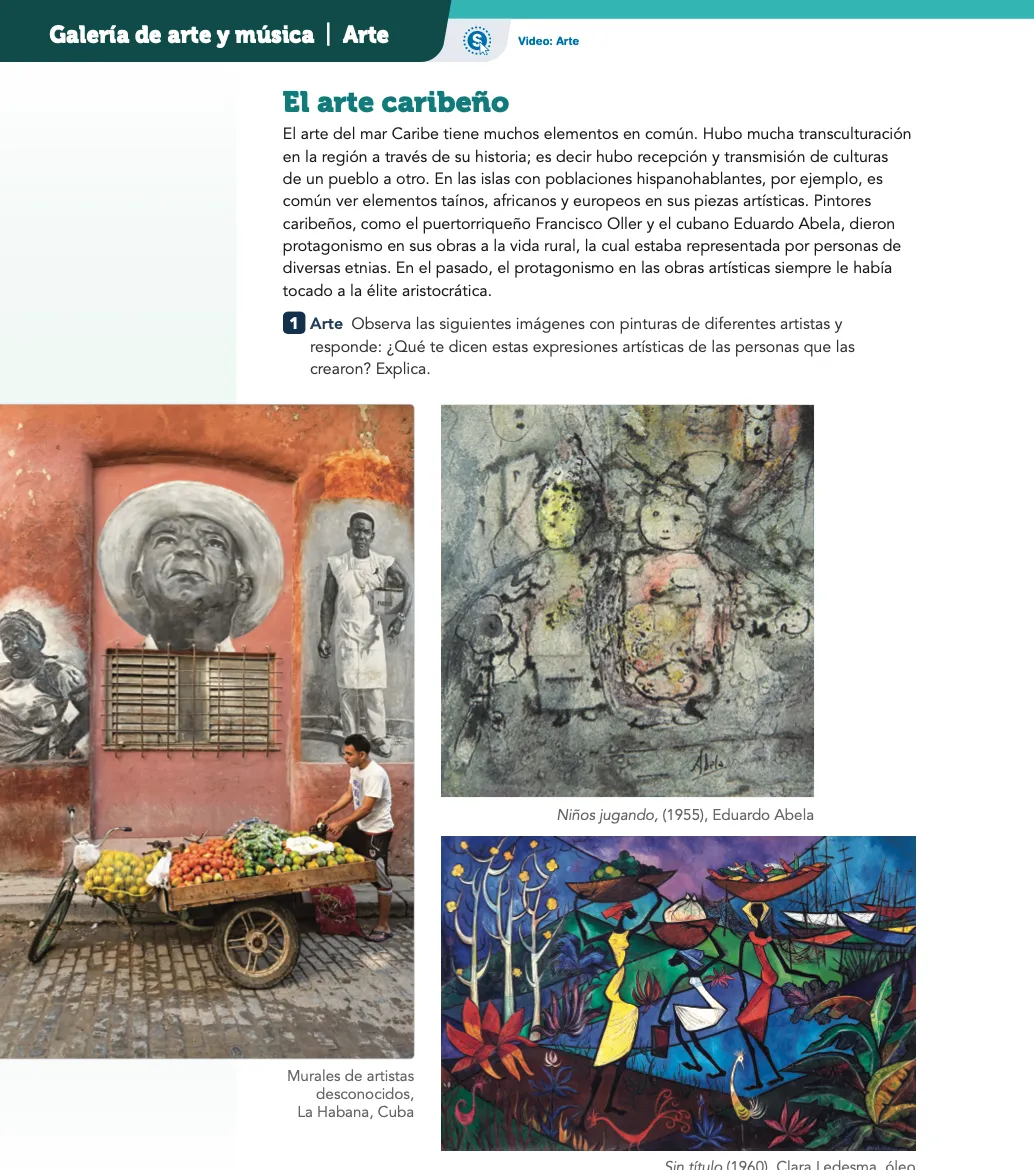
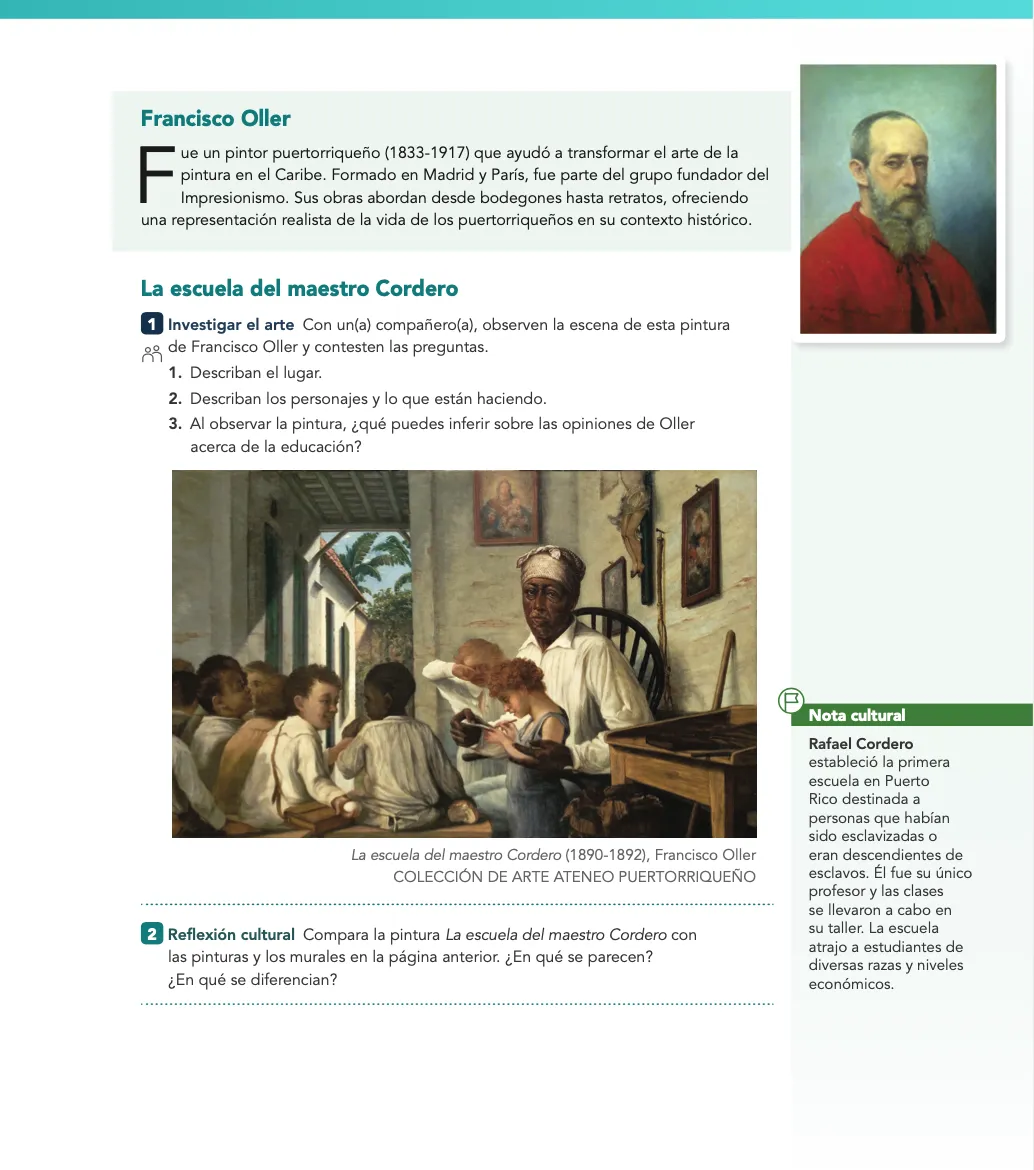
Fase final
Students work on a culminating writing project with an oral presentation, watch a general review video with activities, and complete a self-assessment.
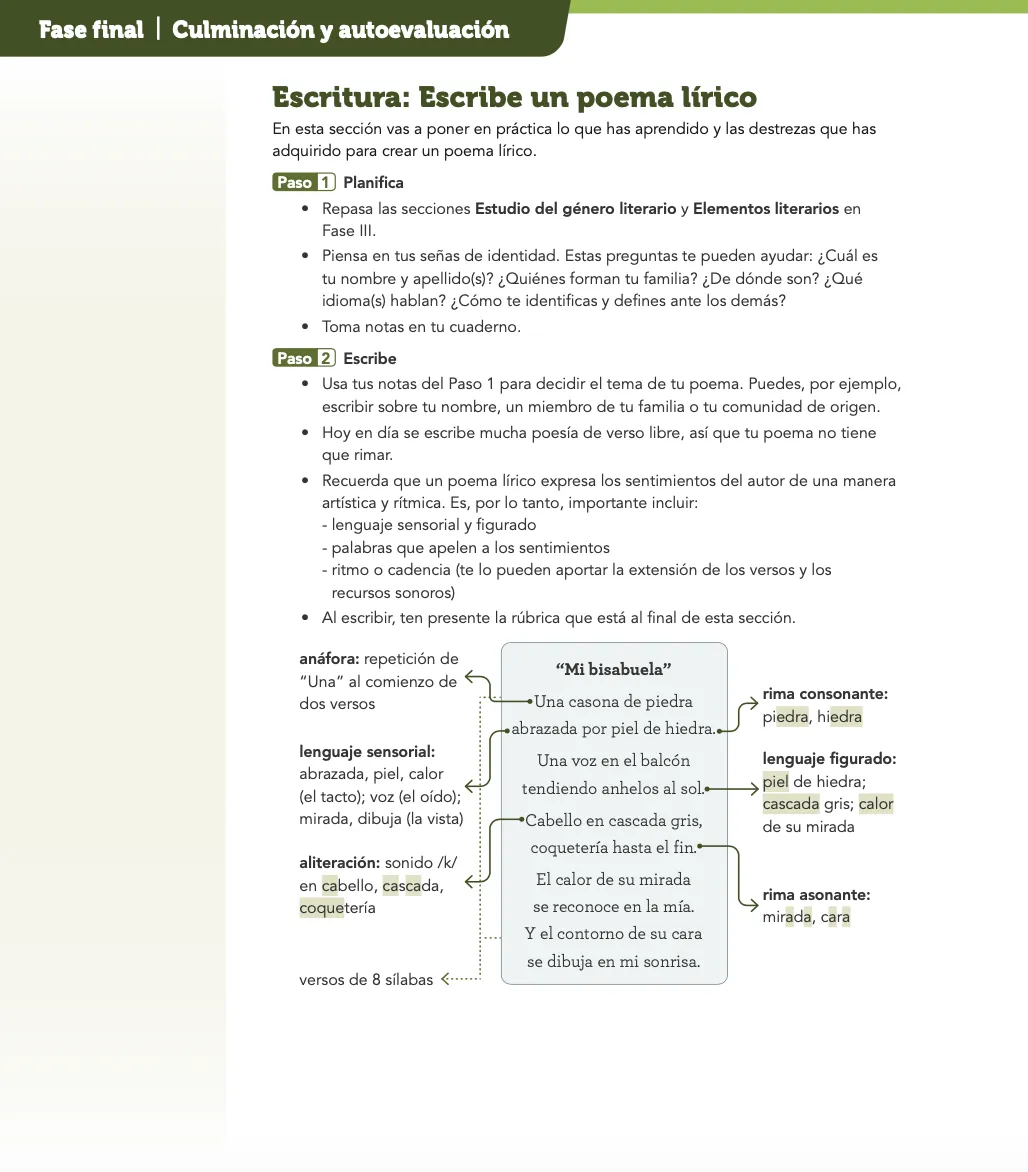
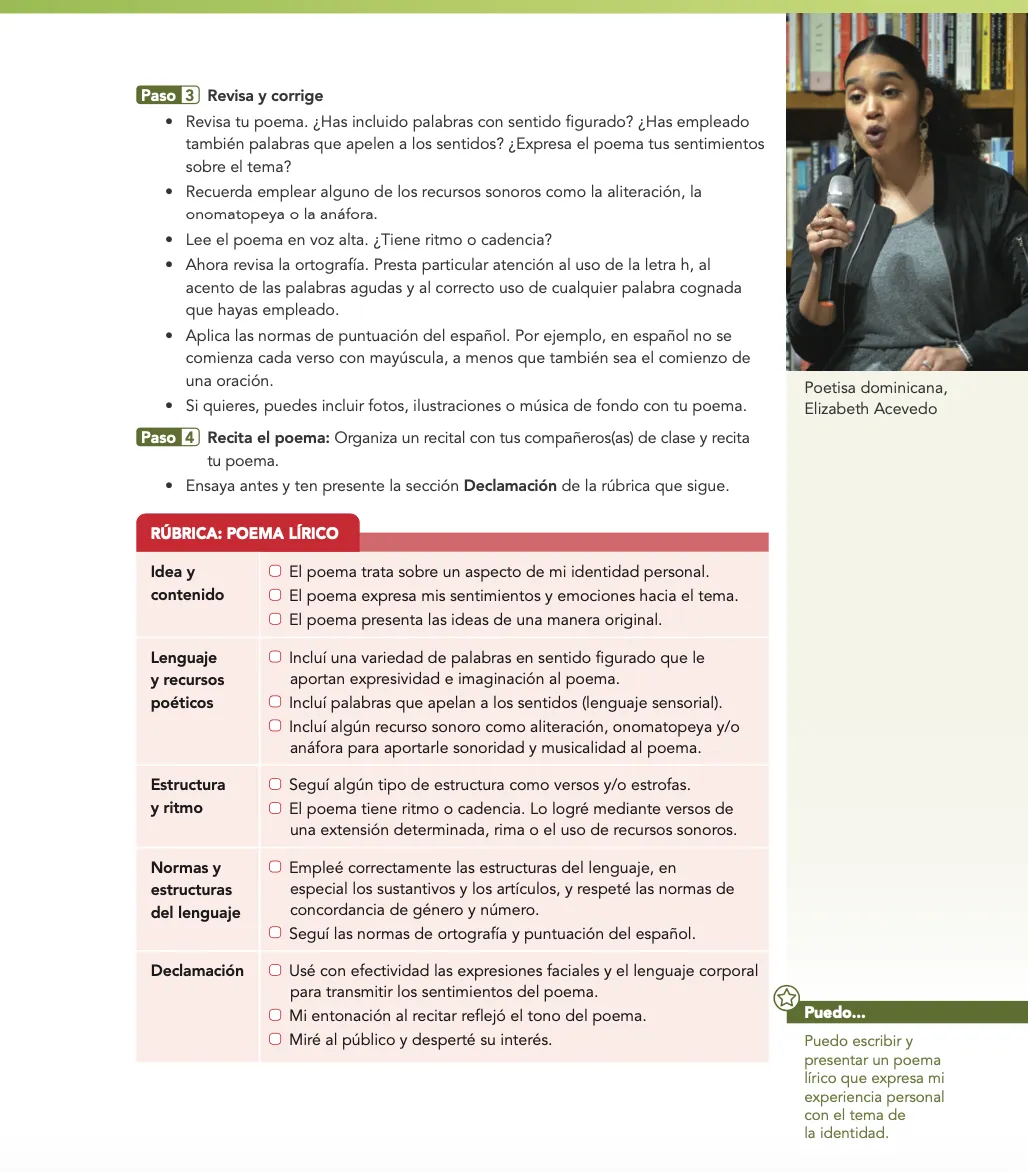
Escritura writing project
- Writing prompt and examples
- Step-by-step instructions and rubrics
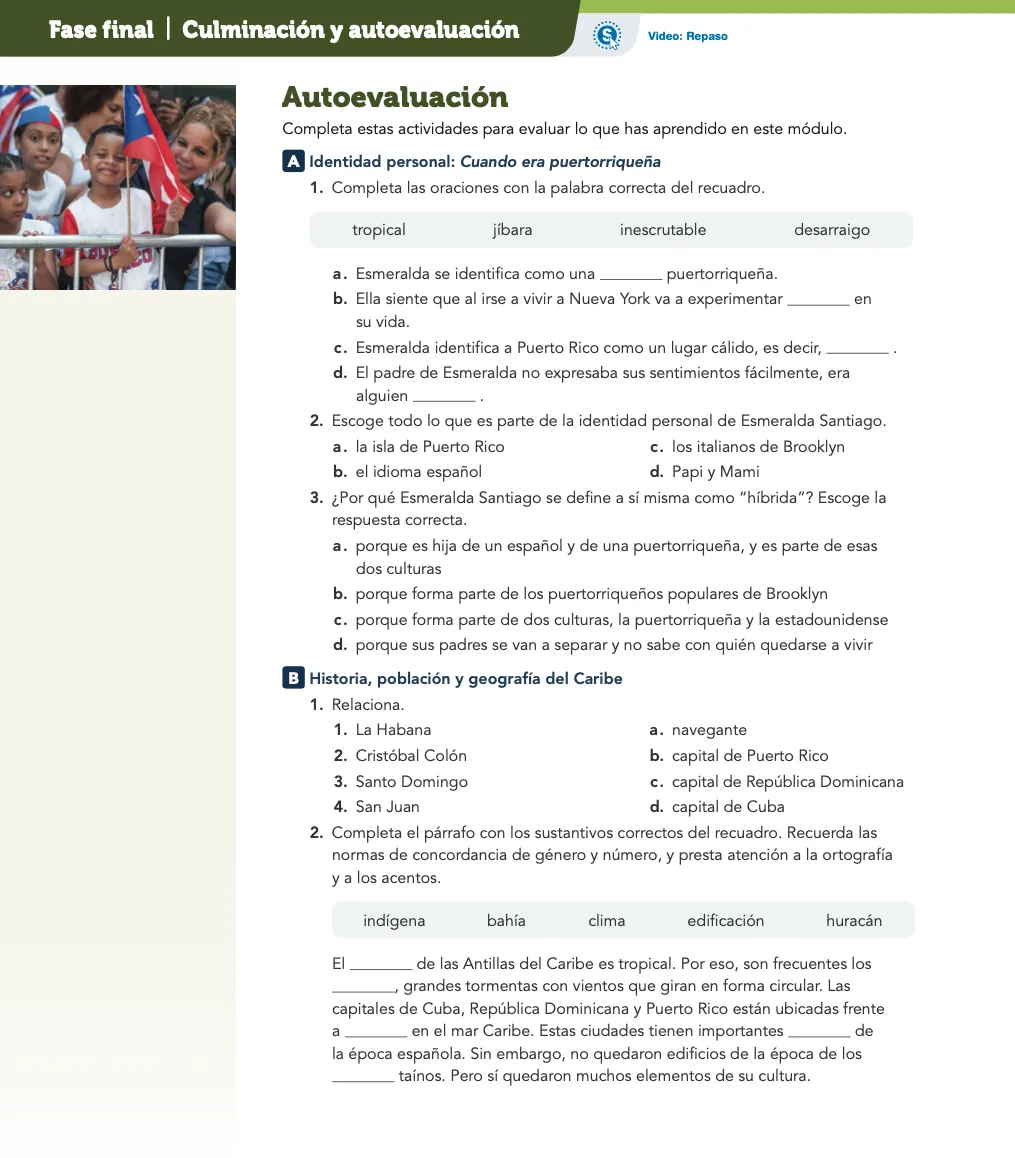
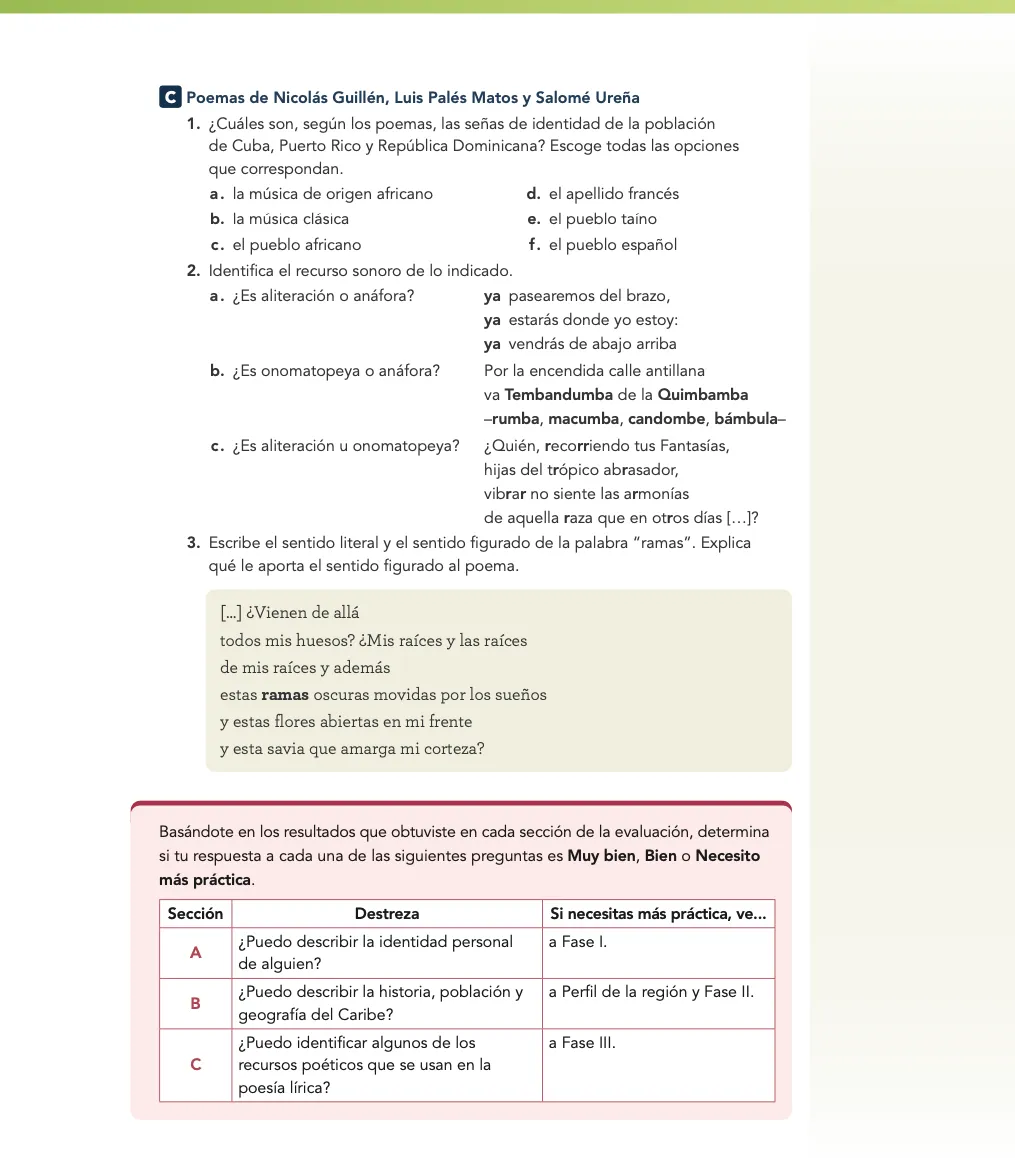
Autoevaluación includes:
- Self-assessment
- Quick check of literature, region, and grammar knowledge
- Review recommendations
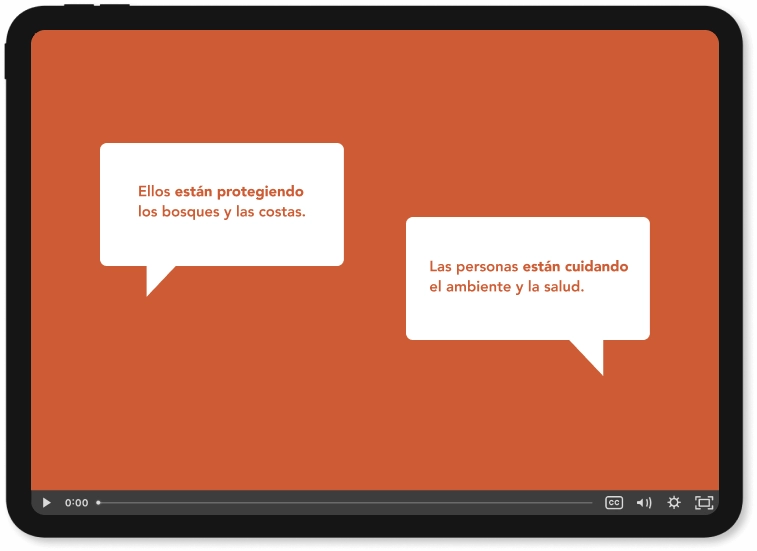
Repaso audiovisual
Review of theme, region, and grammar, with questions and activities within the video.